

Pohela Boishakh: Exploring the History and Evolution of the Bengali new year
The term “Pahela” means “first” in Bengali, and “Baishakh” represents the first month of the Bengali calendar. Pohela Boishakh, also known as Bengali New Year, holds an important place in the hearts of Bengalis globally. Pohela Baishakh carries cultural significance and has grown as a multicultural festival all over the world.
It is a vibrant and significant cultural festival for Bengalis and carries a sense of cultural pride. People from every religion gather together and celebrate this day without showing any kind of discrimination.Traditional dresses, foods, songs, and dances are held to entertain people in many places. The evolution of culture reveals the significance and vibrant identity of Bengali tradition.
What is Pohela Boishakh? The history of Pohela Baishakh
The first day of the Bengali calendar is known as Pahela Baishakh, also known as the Bengali New Year. Every year, on the 14th or 15th of April, it marks the start of the new agricultural year and welcomes the arrival of spring. Pahela Baishakh is widely observed in Bangladesh and West Bengal, India, as well as by the Bengali diaspora worldwide.
Pahela Baishakh celebrations have strong cultural and historical roots. It started with Bengal’s rural agricultural traditions. During the Mughal era, Emperor Akbar introduced the Bengali calendar in order to improve tax collection. After a decade, this occasion became a cultural festival in Bengali. Since that moment, the Bengali calendar’s first day, Pohela Baishakh, has been identified as the beginning of a new year.
Pahela Baishakh is a season of celebration, harmony, and rejuvenation. The day begins with cultural performances known as “Mangal Shobhajatra,” in which people march through the streets wearing colorful masks, floats, and banners in order to demonstrate solidarity and protest against social and political injustices.
The fair, or “Boishakhi Mela,” is one of the attractions of Pahela Baishakh. Musical performances, traditional dances, arts and crafts exhibitions, and food stalls serving wonderful Bengali cuisines are all part of these fairs. People gather with their family and friends to celebrate the holiday season and participate in various cultural events.
Pahela Baishakh is open to all religious and ethnic groups. It is a celebration that brings people from various backgrounds together. Overall, Pahela Baishakh is a crucial cultural celebration that reflects Bengali culture, heritage, and unity. It represents a new beginning, a chance to embrace new beginnings.
Pohela Boishakh: Explore the Traditional and Cultural Heritage
Pohela Boishakh holds immense cultural significance within the Bengali community. This vibrant festival serves as a unifying force, bringing people together to celebrate their shared heritage. During this time, individuals of all ages dress in traditional attire, infusing the air with a sense of cultural pride and identity. The festival is marked by a multitude of rites and customs that further deepen the connection between the community members.
At the heart of Pohela Boishakh lies a spirit of unity and joy, which is beautifully showcased through the colorful fairs and captivating cultural performances that take place. These events serve as platforms for showcasing the rich artistic and creative traditions of the Bengali culture. The fairgrounds come alive with the infectious energy of folk music, dance performances, and theatrical presentations, all of which contribute to the festive ambiance.
One of the highlights of Pohela Boishakh is the display of traditional crafts that captivate the attention of visitors. Artisans skilled in Jamdani weaving, an intricate technique of creating patterns on fabric, showcase their craftsmanship. The mesmerizing Nakshi Kantha embroidery, known for its elaborate and detailed designs, also takes center stage, drawing admirers from far and wide. Additionally, the art of clay pottery, with its earthy charm and distinctive forms, entices onlookers, creating a truly immersive experience.
Beyond the visual spectacle, Pohela Boishakh serves as a valuable platform for passing down the knowledge and techniques of traditional art forms and crafts to the next generation. Accomplished artists and craftsmen proudly demonstrate their skills, ensuring that these time-honored traditions continue to thrive. This passing of the torch fosters a sense of continuity and instills a deep appreciation for the cultural heritage among the younger generation.
In essence, Pohela Boishakh is a celebration that goes beyond its festive allure. It is a time for the Bengali community to come together, reconnect with their roots, and rejoice in the richness of their cultural heritage. Through its vibrant fairs, captivating performances, and the showcasing of traditional arts and crafts, Pohela Boishakh serves as a testament to the enduring spirit of unity, joy, and cultural pride within the Bengali community.
Evolution Of Pohela Boishakh: Modern Influences and Changes
Pohela Baishakh has changed over time, embracing numerous social and cultural aspects. The celebration of Bengali culture, art, music, and literature has grown from its rural agricultural roots. No matter what, Pohela Boishakh has been accepted from all walks of life,even from religious or ethnic backgrounds. In recent years, as a result of this combination, Pahela Baishakh has become a diverse cultural component.
The way Pohela Baishakh is observed has changed with the rise of the digital age. The promotion and preservation of the festival’s customs have greatly benefited from social media platforms and digital efforts. People enjoy Pohela Boishakh through virtual activities, online exhibitions of artwork, and digital concerts, establishing a sense of participation.
Pahela Baishakh has attracted tourists and people from all over the world. The festive atmosphere, cultural performances, and ancient ceremonies fascinate visitors looking to experience Bengal’s different heritage. Pahela Baishakh has become an occasion for social and cultural awareness. Women’s empowerment, environmental protection, and cultural heritage preservation are frequently addressed during the celebrations. Seminars, workshops, and exhibitions are organized by cultural groups and institutions to raise awareness and promote discussion on these topics, while encouraging a sense of responsibility and involvement among participants.
Pohela Baishakh: A Symbol of Cultural Identity
Pohela Baishakh serves as a reminder of the Bengali community’s strong cultural past and perseverance. It has stood the test of time, overcoming obstacles from history and society. The festival enhances the unity among Bengalis. Thus, a sense of cultural identity, self-reflection and personal development have developed.
Pahela Baishakh celebrations have turned into splendid fashion shows that highlight the ability and creativity of designers, models, and stylists. The festival now includes runway displays, fashion exhibitions, and contests to support individuals and diversity in the fashion industry. These gatherings not only provide young designers with a stage, but they additionally support collaboration and cross-cultural exchange.
Pohela Baishakh represents the persistent spirit of the Bengali community, showing the core values of tradition, celebration, and cultural connection. Pohela Baishakh has inspired people from its humble agricultural roots to its current expression as a colorful and inclusive festival. Pohela Baishakh teaches us the necessity of cultural history by accepting the changes as Bengalis celebrate the new year.
Leave a Comment Cancel reply
Save my name, email, and website in this browser for the next time I comment.
- The Science Behind Our Emotions and the Difference Between the Emotions of Men and Women
- The Minimum Wage Crisis in New York City
- The Supreme Court’s Ruling to Keep Trump on the Ballot is Reshaping the 2024 Election
- When Real-life Deer Meets a Zombie-like Disease: Unraveling the Mysteries of Chronic Wasting Disease
- Hunger’s Silent Battle: Unmasking the Crisis of Food Insecurity
- Phone Progression and Psychology – What Does it Mean for Your Future?
- The Healthcare Catastrophe Running Rampant in America’s Countryside
- The Risks of Biotechnology in the Food Industry
- Citi Bike’s Impact on New York City Transportation
- An Analysis of the U.S. Educational System
- Ecoterrorism: Destruction or Revolution
- The Beauty of Minimalism

The Science Survey
Pohela boishakh: the bengali new year.
How a tax problem led to the creation of a new calendar and a popular annual festival in the Bengal region.
Tasnim Tamanna , Staff Reporter | April 21, 2022
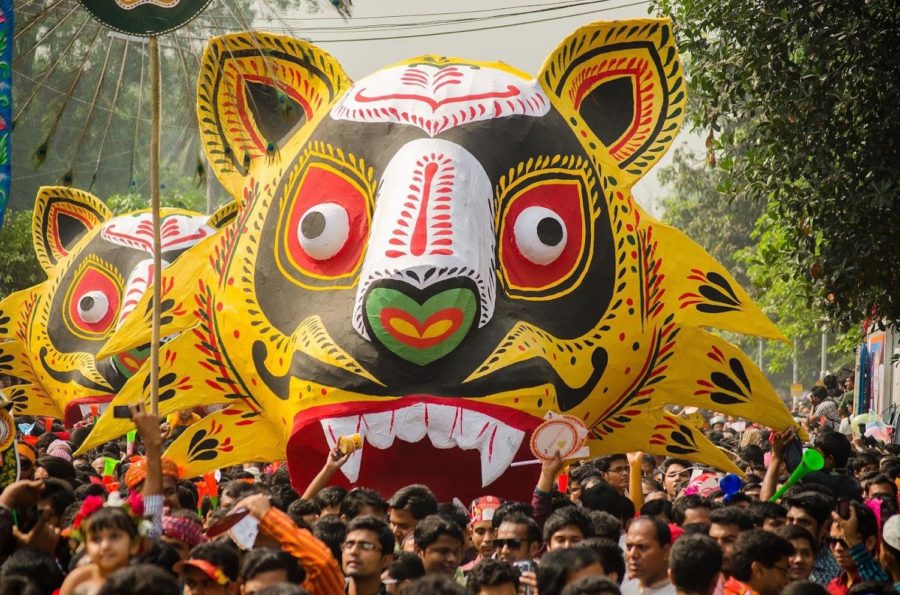
Abidhasan00, CC BY-SA 4.0 , via Wikimedia Commons
Mangal Shovajatra procession on Pohela Boishakh, Dhaka, Bangladesh, 2014
The holiday of Pohela Boishakh, which took place this year on April 14th, 2022, ushered in a new year for all Bengalis.
At the break of dawn, artists from Chhayanaut (an institution devoted to Bengali culture) sing legendary poet and polymath Rabindranath Tagore’s famous song, ‘Esho hey Boishakh, esho, esho (come Oh Boishakh, come),’ welcoming the first day of the Bengali new year. Thousands of people gather in the streets of Dhaka carrying gigantic paper-mache and balloon replicas of birds, fish, animals, folk tale characters, and other cultural symbols, joining the parade of Mangal Shobhajatra — an annual mass procession organized by teachers and students of Dhaka University’s Fine Arts department.
Colorful patterns drawn using home-made rice kernels and designs influenced from traditional folk art paint the front yards of Bengali homeowners and line the sidewalks of main streets. Songs and delicious aromas fill the air, while laughter and celebration stretches the time, giving everyone the perfect excuse to break free from their daily hurdle of responsibilities and spend the day with their loved ones and families.
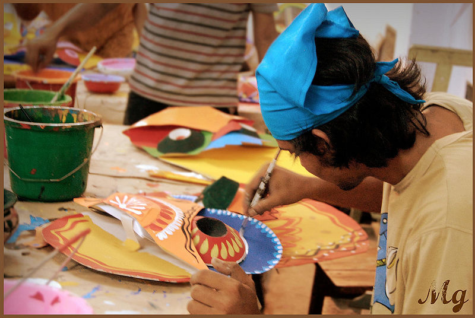
Background:
Unlike many other festivals that are linked to folklore or religion, Pohela Boishakh is a celebration that was created for the Bengali people and the Bengal region. The event dates back to the Mughal period, when taxes were collected using the Islamic Hijri calendar. This, however, created an issue, because the crops were not ready to harvest, making it impossible for people to pay their taxes on time. As a result, Emperor Akbar devised a new calendar so that people could successfully pay their taxes when they were due. Thus came Pohela Boishakh, the first day of the Bangla calendar, the pride and joy of Bengal.
Baisakhi Mela:
The most popular event of the day is the Boishakhi melas (fairs/parades). It is where the people of the community come together and celebrate the day with family and friends. The Melas are mainly locally arranged in villages where vendors and artisans sell various types of traditional products such as homemade sweets, clay dolls, handmade toys, seasonal fruits and vegetables, handloom sarees, glass bangles, bamboo flutes, and many other goods. Nowadays, alongside traditional goods, there are many branded jewelry that have found their place at these fairs. Along with the shopping experience, the fairs also provide a source of entertainment. Circuses, magic shows, chorus singing, and plays take place in designated fairgrounds.
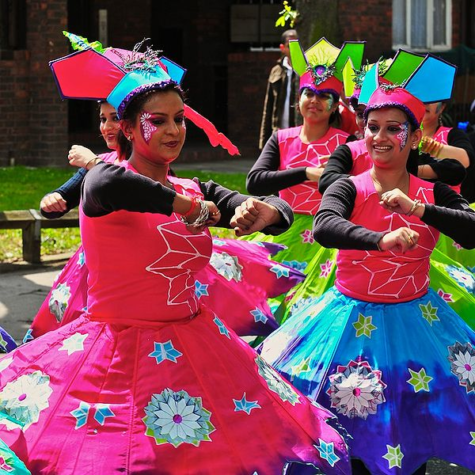
Celebration:
Like any other new year, Pohela Boishakh inspires people to start the year with new hope and new inspirations. Families come together to celebrate with each other. Children engage in full, formal bows throughout the entire day, touching the feet of elders to seek blessings, and friends greet each other with hugs and kisses.
On this day people wake up early, take a bath, and dress in traditional clothes. Women typically wear red and white sarees with blouses and adorn themselves with colorful bangles and flowers, while men wear red and white dhotis and Punjabis. People also celebrate this day by eating traditional dishes such as Panta Bhat (soaked rice) with fried ilish mas (hilsa fish) and other curries. However, this does not mean that there is no Pohela Boishakh without wearing red and white and eating fried hilsa fish.
“It’s not the red and white clothing or foods that makes the day so special; rather, it’s the spirit of Boishakh,” said Sadia Afrin, a member of the Bangladeshi community. “Although nowadays people put so much emphasis on these small things, they weren’t always there. Back then people just wore clothes that they could best afford because it was a new year and people wanted to celebrate it as best as they could. The color code is something that came later on. It is the same thing with eating panta ilish.”
Halkatas are also a special part of Pohela Boishakh. This is a financial affair that takes place in villages, towns, and cities where traders and businessmen open their stores to welcome their new and old customers and share sweets with them. Old clients would look at their past to clear up the due before a new year starts.
“However with time, the market has changed. Nowadays Halkatas are not as frequent as before. Nowadays it’s all about the money you owe, and there’s no longer that genuinity in celebrating halkattas,” said Abdus Samad, a local from Bangladesh.
Conclusion:
Although there are things that have changed with time, Pohela Boishakh still serves as an inspiration for the Bengali nation. It is celebrated by countless Bengalis living aboard in countries such as the U.S.A., the United Kingdom, and Australia. Today, it is the only holiday that connects all the Bengalis in the world together regardless of where they live, the dialect they speak in, or the religion they practice. It is not about lavish clothing, delicious food, or colorful decorations. It is really about celebrating the rural roots and history of the Bengal region.
“It’s not the red and white clothing or foods that makes the day so special; rather, it’s the spirit of Boishakh,” said Sadia Afrin, a member of the Bangladeshi community.
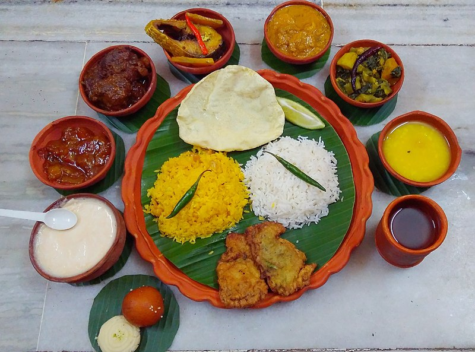
- celebration
- celebrations
- gift-giving
- Mangal Shobhajatra
- new calendar
- Pahela Baishakh
- West Bengal
Tasnim Tamanna is a Staff Reporter for 'The Science Survey.' Tasnim finds journalism to be appealing because she loves to tell stories through her articles....
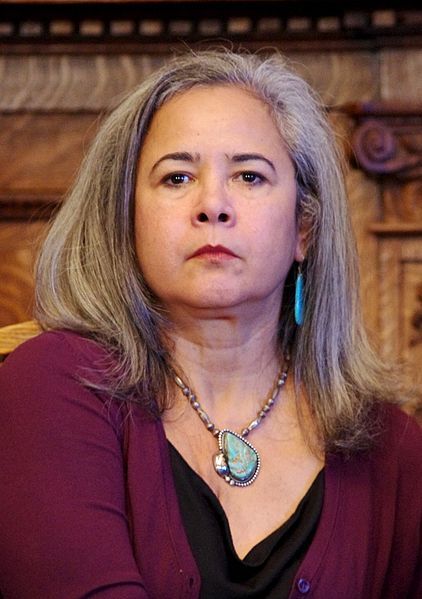
From Memoir to Masterpiece: Esmeralda Santiago’s Literary Legacy
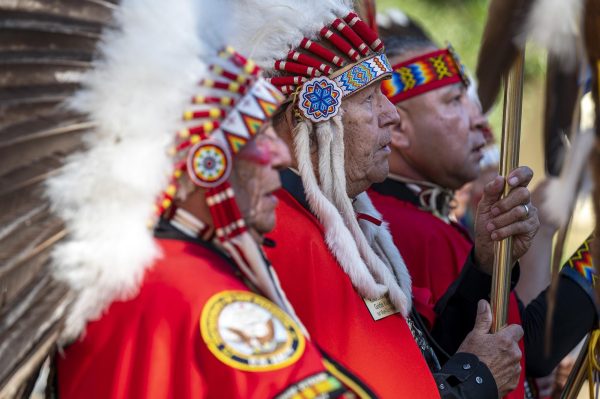
A World Silenced: The Importance of Protecting Indigenous Languages
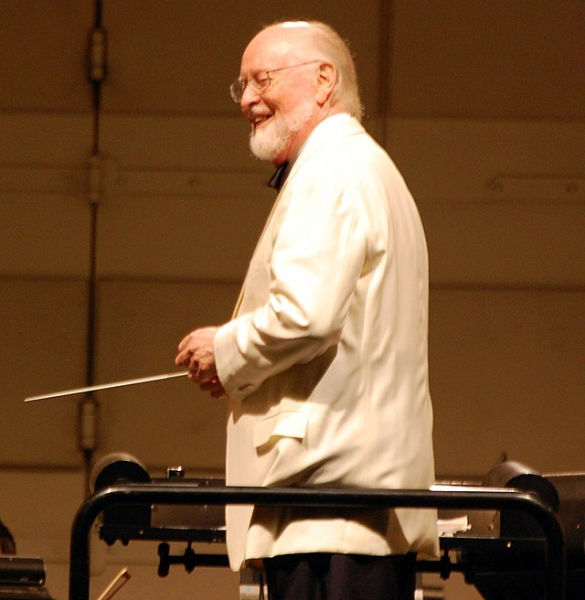
The Modern Mozart: A Profile on the Composer John Williams
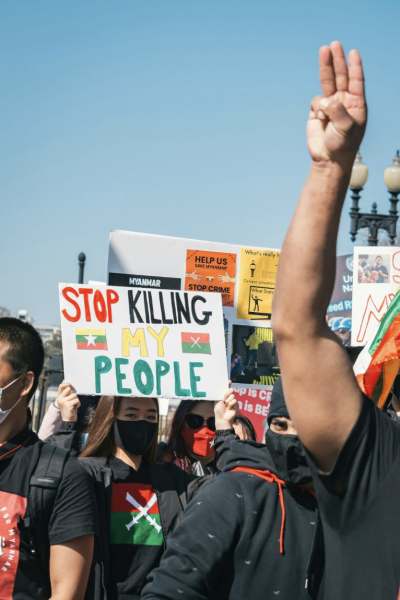
The Forgotten War in Myanmar
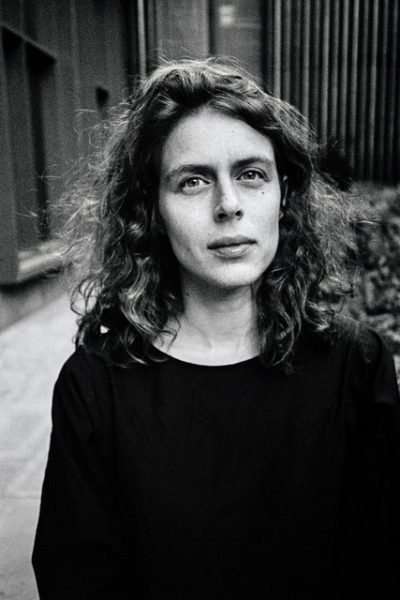
New Yorker Writer Rachel Aviv’s Advice to Young Writers

Manuel Bosteels and Nora Berisha Are Named Valedictorian and Salutatorian of the Class of 2024
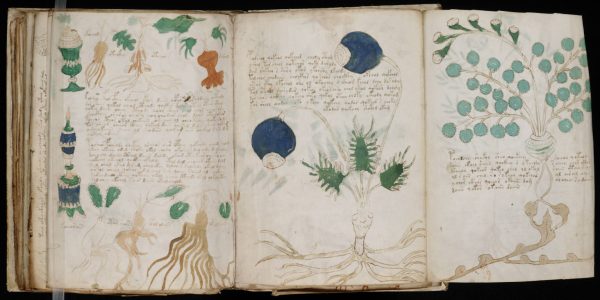
Lost in Translation: Reflections of Our Souls in the Voynich Manuscript
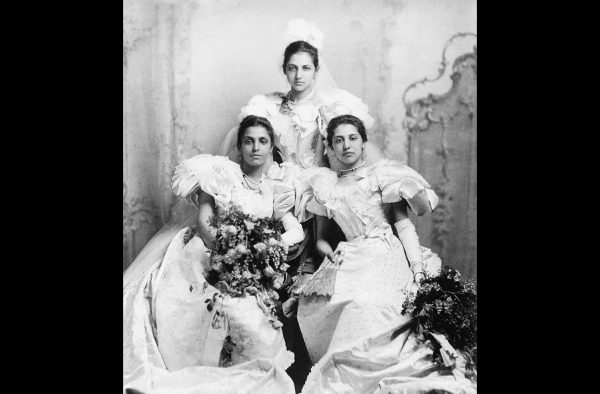
Exiled Princesses, Women’s Suffragists, and Activists: A Profile On the Singh Sisters

Richard Feynman: Brilliant Scientist, Mischievous Prankster, and Swashbuckling Orator

From Bean to Buzz: Unveiling the Global Journey of Coffee
How Bengalis Celebrate the New Year
Rifat Jamil Eusufzai/Wikimedia Commons/CC BY 4.0
- Indian Arts and Culture
- India Past and Present
- Important Texts
- Temples and Organizations
- Hindu Gurus and Saints
- M.A., English Literature, University of North Bengal
The Bengali New Year celebration is popularly known as Poila Baisakh (Bengali poila = first, Baisakh = the first month of the Bengali Calendar). It's the first day of the Bengali New Year, which usually falls in mid-April every year.
Traditional 'Naba Barsho' Celebrations
The years known as 2017 and 2018 is the year 1424 by the Bengali calendar, and Bengalis are quickly forgetting the traditional old traditional ways of celebrating the 'Naba Barsho' (Bengali naba = new, barsho = year). However, people still wear new clothes, exchange sweets, and pleasantries with friends and acquaintances. Younger people touch the feet of elders and seek their blessings for the coming year. There's also a custom of wearing gem-studded rings to appease the stars and planets! Near and dear ones send gifts and greeting cards to one another other. These gifts are often handmade and based on local themes, but they may also be costly gifts from international brands, like Hallmark or Archies Greetings. Free Bengali New Year greetings e-cards are also available online.
Panjika , the Bengali Almanac!
As the year draws to a close, Bengalis throng to the bookstall to book a copy of Panjika , the Bengali almanac. It's a rather fat year-long handbook to help you find festival timings, favorable days, auspicious dates for everything from weddings to housewarmings, from starting a journey to launching a business and more.
Panjika publishing is a big business in Kolkata, with Gupta Press, PM Bagchi, Benimadhab Seal, and Rajendra Library vying with each other for their share of the Bangla Almanac pie. The Panjika comes in several sizes—directory, full, half and pocket. Panjikas have come of age by including modern content, such as phone numbers for hospitals, doctors and police stations, and religious festival timings for people abroad in Bangladesh, the US, and the UK—all in local time. This makes them in very high demand for the Bengali diaspora. Although the English calendar has gained precedence over the Bengali Calendar over the years, almost all events in rural Bengal takes place according to the Bengali calendar.
Baisakh also ushers in the beginning of the new agricultural season in Bengal.
Bengali Year-End Fairs
Hindus throughout Bengal celebrate the year-end or 'Chaitra Sankranti' with some exciting fairs and festivals, such as Gajan and Charak. Traditional Charak Mela, which includes some extreme spiritual acrobatics, is held in small and big towns in West Bengal, culminating in Latu Babu-Chhatu Babur Bazar in North Kolkata on the last day of the year, and a day later at Konnagar, the location of Bengal's only 'Basi Charaker Mela'.
Haal Khata for Traders in Bengal
For Bengali traders and shop owners, Poila Baisakh is Haal Khata time—an auspicious day to 'open' the ledger. Ganesh and Lakshmi Puja are solemnized in almost all shops and business centers, and regular customers are formally invited to attend the evening party. To consumers, it may not always be something to look forward to, for Haal Khata also means settling of all outstanding debts of the preceding year.
Bengali New Year Cuisine
The Bengali penchant for enjoying good food comes through best on Poila Baisakh. Household kitchens exude the aroma of freshly prepared Bengali delicacies, especially sweet dishes because it's thought to be a good omen to start the year with mishtanna, or traditional sweets such as Rosogollas, Payesh, Sandesh, Kalakand, and Ras Malai. The New Year cuisine for lunch, of course, contains various preparations of fish and rice. Those who prefer to go out to eateries enjoy a variety of delights for the palate.
Poila Boishakh Celebrations in India and Bangladesh
There is a subtle difference between the way Bangladesh and West Bengal ring in the New Year. Although Poila Baisakh is very much a part of the Hindu calendar , 'Naba Barsho' is a national festival for the Islamic State of Bangladesh, and a distinctly greater exuberance marks the festivities in this part of Bengal. While it's Poila Boishakh in West Bengal, the celebration is known as 'Pahela Baisakh' in Bangladesh. It's a public holiday in Kolkata, but in Dhaka, even newspaper offices remain closed for the Bengali New Year.
One thing that's common to both sides of the border is ushering in the New Year with Rabindra Sangeet or Tagore's musical invocation, Esho Hey Baisakh Esho Esho (Come Baisakh, Come O Come!), or the relatively obscure composition Aaj Ranashaje Bajiye Bishan Esheche Esheche Baisakh .
Dhaka residents start early at daybreak with public celebrations of Poila Baisakh at the Ramna Maidan. Most Kolkatans prefer to celebrate it with music and dance. Kolkata's film town, Tollygunge, celebrates the New Year with the auspicious mahurat functions of Bengali movies, a traditional part of Poila Baisakh at Tollywood, Bengal's center of filmmaking. The city hosts several special programs on the occasion, with notable crowds attracted to Nandan, the Calcutta Town Hall, New Market, and the Maidan.
Don't forget to wish your Bengali friends "Shubho Naba Barsho!" (Happy New Year!) on Poila Boishakh, mid-April every year.
- Hindu New Year's Celebrations by Region
- The Ganesh Chaturthi Festival
- Full and New Moon Hindu Rituals and Dates
- Bengali Hindu Wedding Rituals
- Dhanteras, the Festival of Wealth
- Gita Jayanti: Celebrating the Birth of the Bhagavad Gita
- Celebrating Hinduism's Guru Purnima
- The Real Reason for the Hindu Raksha Bandhan Celebration
- Reasons to Celebrate Diwali the Festival of Lights
- Hindu Calendar: Days, Months, Years, and Epochs
- Tutorial on How to Wrap a Sari
- The Legend of How Rice Grains Became Small
- The Power of Mantra Chanting
- Praying in Hinduism - Why and How-to Do It Right.
- Find out How Hinduism Defines Dharma
- Uttarayan, the Kite Festival of Gujarat
Pahela Baishakh – পহেলা বৈশাখ বাংলা ১৪২৭
Origin & history of pohela boishakh.
The Bengali New Year so warmly celebrated all over the world today originated not from Bangladesh. Yes, what is popularly known as Bangla calendar today saw the light of day through a decision declare by Akbar the Great on 10 March 1585, the famous grandson of Zahiruddin Muhammad Babar was the 3rd Mughal Emperor. Akbar started the Bengali calendar year to collect the tax under his reign (1556-1609).
Names of the Bengali Months
Nobody knows for sure how and when we started naming the months as Baishakh, Jaishtha, etc. It is guessed that these months, based on the names of the stars, were evolved from the Shakabda which was introduced in 78 A.D. to commemorate the kingdom of the Shaka dynasty in this subcontinent. The star-based names of the Bengali months were evolved as follows:
Pohela Boishakh Traditions, Customs, and Activities
Panta Ilish – Food is an important part of the Bengali New Year. Panta Ilish is a traditional platter of leftover rice soaked in water with fried Hilsa, help out with dried fish (Shutki), pickles (Achar), green chilies and onion – a popular dish for the Pohela Boishakh festival.
Bangla New Year SMS & Pohela Boishakh Messages
1. Notun e din, Notun alo, Notun e bochor, Notun kichhu bhalo, Notun kichhu katha, Notun kichhu asha Notun kore jibon niea notun sopno dekha. SUBHO NOBO BARSOChoitrer Raater Sheshe
2. Surjo Ashe Notun Beshe, Shei Surjer Rongin Aalo Muchhe Dik Jiboner Sokol Kalo Shubho Nobo Borsho!
4. Misti alor jhikimiki sobuj ghase ghase, snighdho haway duliye matha fuler koli hase, Pakhir gane poribese mayabi ek dhoa, dilam tomay subho nababorsher chhoya.
5. Notun Surjo, Notun Pran, Notun Sur, Notun Gan, Notun alloy katuk adhar, par hoye jao okul pathar, Katuk Bishad Asuk Horso, Suvo hok NOBO BORSHO
8. Chaitrer raat holo abosaan Jagche notun bochor Boisakh eri bhore Sobai ke janai subho nonoborsho!
10. Sending your way.. Deep felt wishes and greetings.. for the oncoming year.. May you bengali happy new year.. be happy and prosperous!
Top 10 Pohela Boishakh Songs
Pohela boishakh picture collection, articles worth reading:.
- International
- Today’s Paper
- T20 World Cup
- Express Shorts
- Mini Crossword
- Premium Stories
- Health & Wellness
Pohela Boishakh 2021: Bengali New Year date, history, importance and significance
Bengali new year (pohela boishakh) 2021 date: people exchange greetings and also attend processions. the traditional greeting for the day is “shubho noboborsho” which means “happy new year”.
Bengali New Year (Pohela Boishakh) 2021 Date: Poila Boishakh, also known as Bangla Noboborsho, is the first day of the Bengali calendar and celebrated as new year’s day. It usually falls on April 14 or 15 every year, set according to the lunisolar Bengali calendar as the first day of the first-month Boishakh. This year, the festival will be celebrated by Bengalis in West Bengal, Tripura and Assam on April 15.
According to the Drikpanchang, it is believed that King Shoshangko of ancient Bengal is credited with starting the Bengali era, which is estimated to be in 594 in the Gregorian calendar. Hence, Bengali year is 594 less than the Gregorian calendar if it is before Pohela Boishakh or 593 less if it is after Pohela Boishakh.

However, some believe that the Bengali calendar was introduced during the time of emperor Akbar, who had asked royal astronomer Fathullah Shirazi to create a new calendar combining the lunar Islamic calendar and solar Hindu calendar, already in use. In rural Bengali Hindu communities, the Bengali calendar is credited to emperor Vikramaditya.
Poila Baisakh also marks the beginning of the new financial year for the Bengali business community, which visits shops and buys valuables as it signifies good fortune. They also worship Lord Ganesha and Goddess Lakshmi on this day. People wear new clothes and indulge themselves in sweet delicacies, to celebrate the day.
Today, the festival is celebrated by Bengalis by buying new clothes and feasting on traditional delicacies. People exchange greetings and also attend processions. The traditional greeting for the day is “Shubho Noboborsho” which means “Happy New Year”.

For more lifestyle news, follow us: Twitter: lifestyle_ie | Facebook : IE Lifestyle | Instagram: ie_lifestyle
- Poila Boishakh
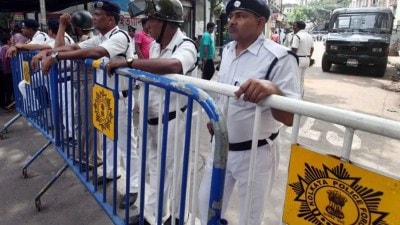
A woman in West Bengal committed suicide after being beaten by villagers for an alleged affair. Her husband blames the village panchayat and a TMC leader for summoning and assaulting her. Four arrests have been made, but the TMC government is facing backlash for not protecting women. The incident has sparked a debate over kangaroo courts and violence against women in the state.

More Lifestyle

Buzzing Now

Jul 03: Latest News
- 01 Blinken, top Zelenskyy aide discuss bringing Ukraine closer to NATO
- 02 Danve’s loyalty to Sena UBT helped him get post of legislative council LoP
- 03 Taiwan demands release of a fishing vessel detained by China’s coast guard
- 04 Italian landowner is arrested after an Indian worker bled to death in accident with farm equipment
- 05 Stilt plus 4: ‘Illogical’: people, institutions urge Haryana CM Saini to review decision
- Elections 2024
- Political Pulse
- Entertainment
- Movie Review
- Newsletters
- Web Stories
- Religion News
- Festivals News
Pohela Boishakh 2022 today: Know everything about Bengali New Year
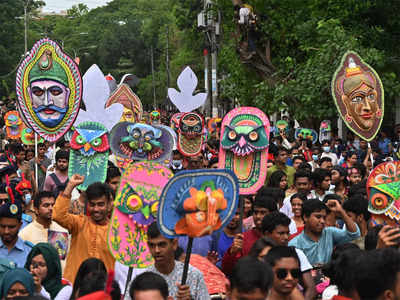
| Pohela Boishakh Day & Date | Friday, April 15, 2022 |
| Sankranti Moment on Pohela Boishakh | 08:56 AM, Apr 14 |
Visual Stories

Important Stories
Latest collection of men’s sweaters for winter in bangladesh (2024), new collection of men’s winter caps or tupi in bangladesh (2024), best winter jackets for men; best deals in bangladesh (2024), community , information , lifestyle, pohela boishakh: origin, history, culture & facts 3 29300.

Pohela Boishakh (Bangla New Year) Date – Friday, 14 April, 2023 in Bangladesh
What is Pohela Boishakh / Bangla New Year?
Bengali New Year is referred to in Bengali as “New Year” (Bengali: নববর্ষ Nôbobôrsho , from Sanskrit Nava(new) Barṣha(year) or “First of Boishakh” (Bengali: পহেলা বৈশাখ Pôhela Boishakh . Nobo means new, and Borsho means year. In Bengali, Pohela stands for ‘first,’ and Baishakh is the first month of the Bengali calendar.
Bengali New Year (Bengali: নববর্ষ) or Pahela Boishakh (পহেলা বৈশাখ) is the first day of the Bengali calendar, celebrated in both Bangladesh and West Bengal and in Bengali communities in Assam, Tripura, and Odisha and all over India as well where the Bengali community arises. It coincides with the New Year’s Days of numerous Southern Asian calendars. Poila Boishakh connects all ethnic Bengalis irrespective of religious and regional differences. In India, in West Bengal and Assam, it is a public (state) holiday and is publicly celebrated in mid-April. Bangladesh is a national holiday celebrated around 14 April according to the official amended calendar designed by the Bangla Academy.
Boishakh/Baishakh is the first of the Bengali months where Pohela simply means “first”. The term “Pohela Boishakh” therefore, stands for the first day of the Bengali year and naturally refers to the festivity attached to this day as well. The celebration itself is called “Borsho Boron Utsab” or “Boishakhi Utsab” (the gala of Boishakh), which is held to welcome the Nobo Borsho (New Year). It is one celebration that goes beyond geographical borders as the Bengali New Year is celebrated in the West Bengal of India as well as in Bangladesh, making it the biggest cultural festival that has survived the last few centuries where Bengalis of all walks of life come together to make it colorful, bright and joyous.
Facts about Pohela Boishakh
Here are some interesting facts about Pohela Boishakh that you may not know:
- The traditional Bengali sweets, such as “roshogolla” and “mishti doi,” are an essential part of Pohela Boishakh and are often exchanged as gifts between friends and family members.
- Pohela Boishakh is also celebrated in other parts of the Indian subcontinent, such as West Bengal and Assam, – The “Mongol Shobhajatra” procession, which has become synonymous with Pohela Boishakh, was recognized by UNESCO as a “Masterpiece of the Oral and Intangible Heritage of Humanity” in 2016.
- Pohela Boishakh is also an important occasion for business and commerce, with many shops and markets offering discounts and promotions to attract customers. The day is considered auspicious for starting new ventures or making investments.
- Pohela Boishakh has also gained global recognition in recent years, with various diaspora communities organizing cultural events and festivals in different parts of the world.
Origin & History of Pohela Boishakh:
Who started bengali new year.
The story of the pohela boishakh history has a few versions. However, they all go back to one particular Mughal emperor, Akbar the Great, and the tax collecting process under his reign (1556-1609). Several hundred years ago, the economy almost entirely depended on agricultural production. In Bengal, agriculture necessarily revolved around its six seasons. Under the Mughals, the tax was collected on the basis of Arabic or Hijri year, which did not exactly go hand in hand with the seasonal cycle of this region. For instance, when it was time for the landowners to collect taxes, the peasants would still be waiting to reap their products from the fields.
This way, following a lunar calendar that hijri year was based upon proved inconvenient for all the parties involved. Realizing the urgency of reformation in the existing year system, the Baadshah (emperor) gave one of the many renowned scholars of his court, Fatelluah Shiraji, the responsibility to make the necessary amendments. The new calendar was designed to keep all six seasons’ nature, duration, and contribution to agriculture in mind. Some scholars argue that Pohela Boishakh (1st boishakh) was anything but a reason for festivity for the peasants who comprised the majority of the population when they had to pay off their taxes on the last day of Chaitra/ Choitro, the month before Boishakh.
Besides, the landlords, to collect the taxes, often subjected the grassroots people to physical force. Such circumstances were most unlikely to leave people in a mood for festivity by the time the Pohela Boishakh was knocking on their doors. Despite having enough reasons for it to be contrary, Pahela Baishakh was a time for celebration. To avoid any serious rebellion, Badshah Akbar introduced the masterfully crafted custom of the New Year celebration that took place right after the tax-paying day. The amusements and feasts that used to be arranged helped to smoothen the harshness of the tax paying and sow the hopes for a better year among all.
As mentioned earlier, the celebration of Bengali New Year, pohela Boishakh, takes place both in West Bengal and Bangladesh. But, Pahela Boishakh in Bangladesh did not receive a collective form until 1965. During the growing movement for an independent state from Pakistan that began at the end of the 1940s and continued until independence in 1971, the former Pakistani Government implemented many policies that were somewhat modified versions of the British “Divide and Rule” principle.
In other words, those policies were meant to differentiate a Bengali Muslim from others and avoid a strong, joint movement for independence. As a continuation of such steps, the Pakistani government banned poems by the Noble winning Bengali author, Shree Rabindranath Tagore. Then, Chhayanaut, the only major Fine Arts institution of the time, designed their cultural show for Poila Boishakh to be a means of protest. The Pohela Boishakh takes place under the Banyan tree of Ramna Park in Dhaka ever since it was opened with Boishakhi songs by Tagore.
This way, Pohela Boishak became one with the nationalist notions of the Bengali people who resided in East Pakistan, known as Bangladesh today. The Fine Arts Institute (CharuKala Institute) of Dhaka University enhanced the attraction of the day in the late 1980s by adding Boishakhi Parade (Shobha Jatra) to ensure growing participation and acceptance. Soon, an attempt by a few hundred people to uphold the Bengali traditions and unify Bengalis while doing it transformed into a national event.
The Bengali New Year celebration in West Bengal also ties to religious values. The entire month of Boishakh is considered auspicious. Therefore, the first day by itself is reason enough for festivity. For the Hindu, the day begins with Puja (religious ritual) followed by cultural shows. Because it is considered auspicious, Boishakh is the month when most Hindu weddings occur in both Bengals.
Aspects & Activities of Pohela Boishakh :
How is pohela boishakh celebrated.
In Bangladesh, the day begins before the break of dawn when a crowd gathers in Ramna Park for the Cultural show held by Chhayanat every year. Women mainly wear white Sharee ( tips for women’s fashion on pohela boishakh ) with a red border. Since Boishakh brings spring, women adorn their hair with flowers and wear colorful churi (bangles), symbolizing the many colors and renewed life in nature. On the other hand, men mainly wear traditional Punjabi (Panjabi price in Bangladesh) with Paayjama, Lungi, or Dhuti/Dhoti.
- Boishakhi Parade (Mongol Shova jatra): Boishakhi Mongol Shobha Jatra is one of the biggest attractions of the day. The rally starts at the CharuKala Institute of Dhaka University very early in the morning.
It is arranged all over the country and continues for at least a week. A wide range of products and activities make the fair attractive to all age groups. Find their way here, from home accessories to anything and everything that speaks Bengali authenticity. One of the fun aspects of the Boishakhi Mela is the joy ride like the Merry-Go-Round and Ferris wheel. The ones seen in this fair are different in that they are much smaller, with a simpler structure made of wood and bamboo and lacking engines to run them. Instead, two or more men stand beside these rides to push.
In the front yard and staircases, miniature Aalponas or Rangolies, traditional designs, are drawn using bright colors like red, green, blue,
It is the ritual of closing the old Ledger and opening a new one with new entries on Pohela Boishakh. Traders involved in the gold, clothing, or food business send out invitations to old customers and entertain them with sweets.
Rural sports such as Nouka Baich (boat race), Kite flying, Bull Racing, and flying pigeons are popular.
Cultural Activities of Pohela Boishakh
Folk songs such as Palagan, kavigan, Jarigan, Gambhira gan, Gazirgan, baul, marfati, murshidi and bhatiali songs are staged. So are Jatra (one kind of plays) and other form of Bengali performing arts.
Pohela Boishakh in Dhaka
New Year’s festivities are closely linked with rural life in Bengal. Usually, on Pahela Boishakh, the home is thoroughly scrubbed and cleaned; people bathe early in the morning and dress in fine clothes. They spend much of the day visiting relatives, friends, and neighbors. Special foods are prepared to entertain guests. This rural festival has become enormously big in the cities, especially in Dhaka.
Boishakhi fairs are arranged in many parts of the country. Various agricultural products, traditional handicrafts, toys, cosmetics, as well as various kinds of food and sweets are sold at these fairs. The fairs also provide entertainment, with singers and dancers staging jatra (traditional plays), pala gan , kobigan , jarigan , gambhira gan , gazir gan and alkap gan . They present folk songs as well as baul , marfati , murshidi and bhatiali songs. Narrative plays like Laila-Majnu, Yusuf-Zulekha and Radha-Krishna are staged. Among other attractions of these fairs are puppet shows and merry-go-rounds.

Pohela Boishakh Games
Many old festivals connected with New Year’s Day have disappeared, while new festivals have been added. With the abolition of the zamindari system, the punya connected with the closing of land revenue accounts has disappeared. Kite flying in Dhaka and bull racing in Munshiganj used to be very colorful events. Other popular village games and sports were horse races, bullfights, cockfights, flying pigeons, and boat racing. Some festivals, however, continue to be observed; for example, bali (wrestling) in Chittagong and gambhira in Rajshahi are still popular events.
Pohela Boishakh Food
Observance of Pohela Boishakh has become popular in the cities. Early in the morning, people gather under a big tree or on the bank of a lake to witness the sunrise. Artists present songs to usher in the new year. People from all walks of life wear traditional Bengali attire: young women wear white saris with red borders and adorn themselves with churi bangles, ful flowers, and tips (bindis). Men wear white paejama (pants) or lungi (dhoti/dhuti) (long skirt) and kurta (tunic). Many townspeople start the day with the traditional breakfast of panta bhat (rice soaked in water), green chilies, onion, and fried hilsa fish.

Panta Ilish(পান্তা ইলিশ) – a traditional platter of leftover rice soaked in water with fried Hilsa(ইলিশ), supplemented with dried fish ( Shutki/শুঁটকী ), pickles ( Achar ), lentils ( dal ), green chilies and onion – a popular dish for the Pohela Boishakh festival.
Pohela Boishakh Songs
The most colorful New Year’s Day festival takes place in Dhaka. Large numbers of people gather early in the morning under the banyan tree at Ramna Park, where Chhayanat artists open the day with Rabindranath Tagore’s famous pohela boishakh song, এসো, হে বৈশাখ, এসো এসো Esho, he Boishakh, Esho Esho (Come, O Boishakh, Come, Come). A similar ceremony welcoming the new year is also held at the Institute of Fine Arts, University of Dhaka. Students and teachers of the institute take out a colorful procession and parade around the campus. Social and cultural organizations celebrate the day with cultural programs. Newspapers bring out special supplements. There are also special programs on the radio and television.
The historical importance of Pohela Boishakh in the Bangladeshi context may be dated from the observance of the day by Chhayanat in 1965. In an attempt to suppress Bengali culture, the Pakistani Government banned poems written by Rabindranath Tagore, the most famous poet, and writer in Bengali literature. Protesting this move, Chhayanat opened their Pohela Boishakh celebrations at Ramna Park with Tagore’s song welcoming the month. The day continued to be celebrated in East Pakistan as a symbol of Bengali culture. After 1972 it became a national festival, a symbol of the Bangladesh nationalist movement, and an integral part of the people’s cultural heritage. Later, in the mid-1980s, the Institute of Fine Arts added color to the day by initiating the Boishakhi parade, which is much like a carnival parade.
CHOTTOGRAM, Bangladesh | চট্টগ্রাম, বাংলাদেশ
The center of attraction of the Pohela Boishakh celebrations in the port city Chottogram is the DC Hill Park [ডিসি পাহাড় পার্ক]. Sammilit ō Sanskritik Jot [সম্মিলিত সাংস্কৃতিক জোট] organizes a two-day festival to bid farewell to the old year and welcome the New Year. Various cultural events are organized here, including plays, etc. The public celebration of Poyela Boishakh in Chottogram was started in 1973; the politicians took the initiative to promote Bengali culture.
In the Hill tracts of Chattogram, three different ethnic minority groups have their individual New Year celebrations. Boisuk [বৈশুখ] of Tripura People, Sangrai [সাংগ্রাই] of Marma people, and Biju [বিজু] of Chakma people; presently they have come together to celebrate it commonly as Boi-Sa-Bi [বৈ-সা-বি], a day of a wide variety of festivities; especially need to mention the water festival [জল উৎসব] of the Marma people.
KHULNA, Bangladesh | খুলনা, বাংলাদেশ
College students make great effort in designing festoons, banners, and colorful masks for this event. A newly formed non-governmental cultural organization Shokha Moyukh celebrated Pohela Boishakh at the campus of Govt. B L College, Khulna. The rally was followed by a cultural function at the campus. The event was organized by the students with support from the college faculty. Pohela Boishakh is celebrated in Khulna with enormous joy and enthusiasm. People from all walks of life take part in the Borshoboron Rall y (বর্ষবরণ পদযাত্রা) organized by Khulna Sonskriti Kendro (খুলনা সংস্কৃতি কেন্দ্র).
Kolkata and West Bengal | কলকাতা এবং পশ্চিম বঙ্গ
Kolkata, the sovereign of Bengalis in India; witnesses some of the grand celebrations of Poyela Boishakh. In Kolkata and the rest of Indian/West Bengal, Poyela Boishakh and indeed the entire month of Boishakh is considered an auspicious time for marriages, opening of new business ventures etc. Choitro is the Last month of the Bangla year; the garment traders give special discounts throughout the month. The last day of Choitro, is celebrated as Choitro Sankranti among the Hindu community, and Charak Pujo is held on this day. On this very same day, Charak Mela/ fair is organized in various parts of rural Bengal; some really miraculous acrobatics are performed by the members and these stunts are quite risky indeed.
| |
Pohela Boishakh is also the occasion when the whole family comes for a get together; youngsters touch feet of elders seeking benediction (আশীর্বাদ), and peers greet each other Suvo Nôbobôrsho with a hug (Kolakuliকলাকুলি). The celebration remains incomplete without “ mishti mukh ” exchanging sweets with the near and dear ones. The day of Poyela Boishakh is a day of cultural events. Like Bangladesh, here also people wake up & bathe early in the morning and dress up in traditional Bengali attire. Many go for Probhat Pheri (a parade similar to “Shobhajatra” in Bangladesh, but it’s not as colorful as that) to welcome the first day of the New Year singing Rabindra Sangeet, here also the song “এসো, হে বৈশাখ, এসো এসো” Esho, he Boishakh, Esho Esho is very popular.
Businessmen open new accounting books ( HalKhata ) on this day; for the Bengali Hindu businessmen, HalKhata begins only after performing puja, “Swastik” sign is drawn on the HalKhata by the priests. Devotees are seen in front of the Kalighat temple (কালীঘাট মন্দির) in long queues late at night. Devotees offer Puja to receive the blessings of the almighty.
The Government of West Bengal organizes various fairs and cultural events in different parts of the state. The most famous of these is Bangla Sangit Mela(রবীন্দ্র সঙ্গীত), held at Nandan-Rabindra Sadan ground.
OTHER NATIONS | অন্যান্য দেশ
Apart from Bengal, Poyela Boishakh is also celebrated by the Bengali community living in the United Kingdom, the United States of America, Australia, etc.
Pohela Boishakh celebrations also mark a day of cultural unity without distinction between class or religious affiliations. Of the major holidays celebrated in Bangladesh, only Pohela Boishakh comes without any preexisting expectations (specific religious identity, gift-giving culture, etc.). Unlike holidays like Eid ul-Fitr, where dressing up in lavish clothes has become a norm, or Christmas, where exchanging gifts has become an integral part of the holiday, Pohela Boishakh is really about celebrating the simpler, rural roots of the Bengal. As a result, more people can participate in the festivities together without the burden of having to reveal one’s class, religion, or financial capacity.
Are You ready for pohela boishakh sale online? Then Download Daraz App now!
Frequently Asked Questions
Q: how is pohela boishakh celebrated outside of bangladesh.
A: Pohela Boishakh is celebrated by Bengali communities and diaspora around the world, with cultural programs, music and dance performances, and traditional food fairs. It is also recognized as a public holiday in some countries, such as India and Nepal.
Q: What are some traditional foods eaten during Pohela Boishakh?
A: Some traditional foods eaten during Pohela Boishakh include “panta bhat” (fermented rice), “dal puri” (lentil-stuffed bread), “beguni” (deep-fried eggplant fritters), “shorshe ilish” (mustard-flavored hilsa fish), and “mishti doi” (sweet yogurt).
Q: What are some common greetings used during Pohela Boishakh?
A: Some common greetings used during Pohela Boishakh include “Shubho Noboborsho” (Happy New Year), “Shubho Nabo Barsho” (Happy New Year), and “Naba Barshaar Preeti O Subhechha” (Greetings and Wishes for the New Year).

With years of experience as a seasoned online shopper, I have developed a keen eye for the latest trends and technology in the E-commerce industry. The passion for discovering the best products and services on the web is matched only by love for sharing their findings with others.

This was a great blog regarding Boishakhi season. I was very enjoying every bit of the blog. Thanks for sharing your knowledge.
Leave a Reply Cancel reply
You must be logged in to post a comment.
How to Watch BPL Live Cricket Matches? 0 25752
BPL Live Streaming
Looking for a link to watch BPL cricket live matches in Bangladesh? Now Mobile App is the best solution to watch Bangladesh Premier League (BPL) matches free online. So, forget the subscription fee and just download a BPL live streaming App to enjoy the buffer-free high-voltage BPL matches on Daraz Live according to the BPL 2024 fixtures now.
Where to watch BPL Live stream in 2024?
In Bangladesh, BPL 2024 will be shown on Rabbitholebd , T Sports, and T Sports App. Besides, GTV and Maashranga TV will telecast the matches of the Bangladesh Premier League 2024 in Bangladesh.
Go to the Google Play Store and download the application where you can enjoy the BPL 2024 all matches. Besides, GTV and Maasranga TV telecast the BPL matches so you can stream the BPL cricket matches for free.
Already installed the Daraz App on your smartphone? Update the app for a better experience. If you are a cricket lover, watch live cricket matches on the Daraz App now.
BPL Squads: Dhaka Dominators | Fortune Barisal | Comilla Victorians | Chattogram Challengers | Sylhet Strikers | Rangpur Riders | Khulna Tigers

You may also like: BPL Champions List From 2012 to Present | Roll of Honor Top Run Scorers in Each BPL T20 Tournaments (2012-22) Highest Wickets Takers in Each BPL Tournament (2012-22) List of the Players of the Tournament – BPL (2012 – 2022) Top Players to Watch – Bangladesh Premier League (BPL) 9 – 2023
Shuvo Roy, an enthusiastic Content Writer & Researcher, has expertise in several industries, especially in IT, Software & E-commerce. Moreover, he is a strategic planner.
Khulna Tigers Squad: BPL 10 – 2024 0 4068
BPL Team Khulna Tigers is back again in Bangladesh with more strong power. Watch all the BPL matches online on Daraz Live in Bangladesh according to the BPL 2024 fixture of this season. The Khulna Tigers had some pretty good seasons in Bangladesh Premier League and are hopeful to enter the knockout stage with full force. This year they seem more impressive than the previous campaigns and so the competition is going to be tough.
As BPL has got every team pretty much balanced, Khulna Tigers is very much optimistic about getting the title with the Big Guns of the World. Let’s see what the Khulna Tigers squad is looking like for BPL. You can also know details of how to watch BPL Live on the Daraz blog.
Team Khulna Tigers
- Nasum Ahmed
- Nahidul Islam
- Mahmudul Hasan Joy
- Anamul Haque Bijoy
- Faheem Ashraf
- Dhananjaya De Silva
- Afif Hossain
- Rubel Hossain
- Parvez Hossain Emon
- Habibur Rahman Sohan
- Mukidul Islam Mugdho
- Kasun Rajitha
- Dasun Shanaka
Cricket Lover? Watch live cricket streaming free on Daraz App Now.
BPL Squads: Dhaka Dominators | Fortune Barisal | Comilla Victorians | Chattogram Challengers | Sylhet Strikers | Rangpur Riders

Varsity Campus
Your Future Campus
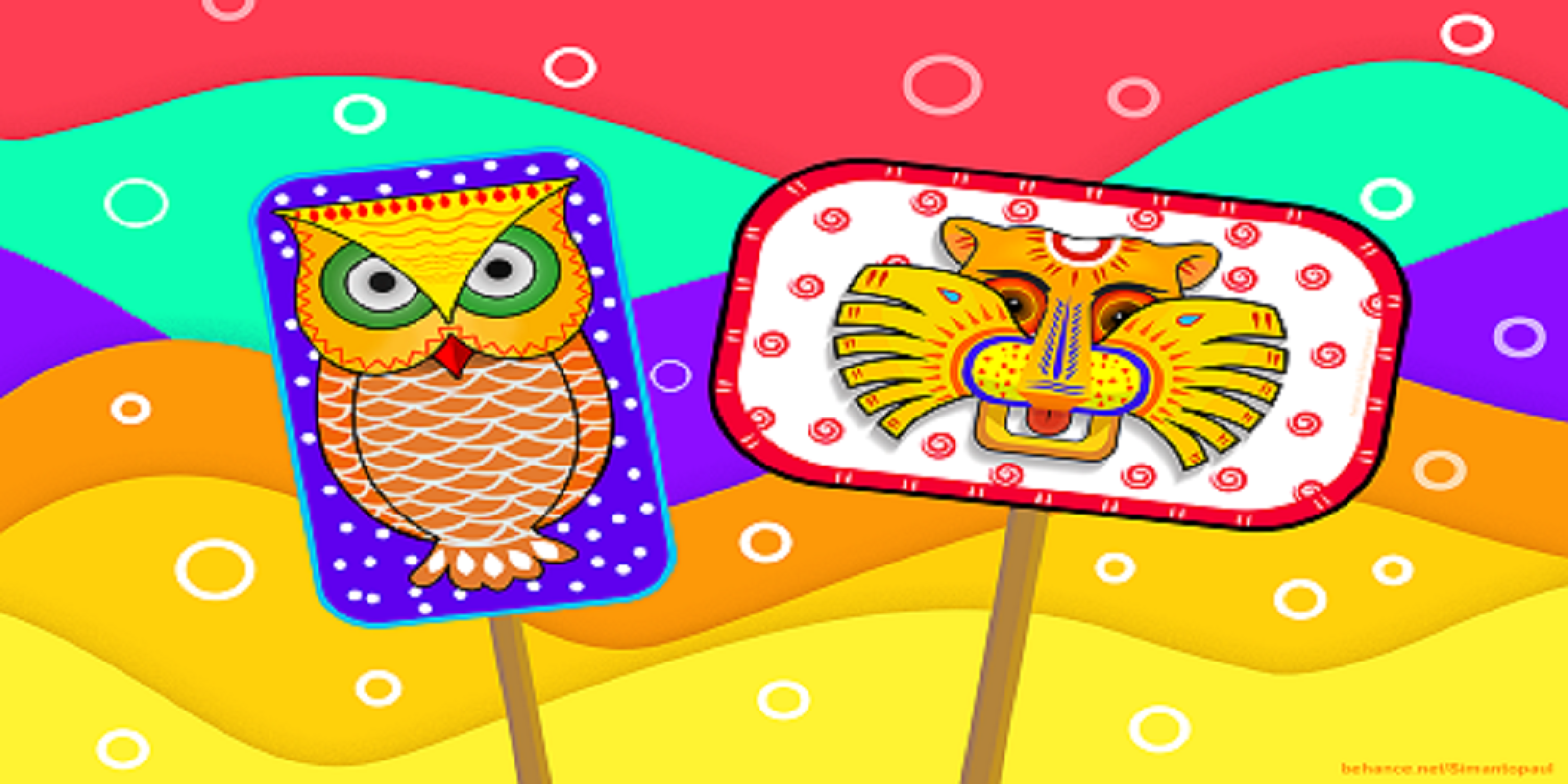
March 14, 2023
The Pohela boishakh paragraph in 150, 200, 300 and 600 words for all classes
This pohela boishakh paragraph is written based on those tradition that the Bangla had. Bengali New Year (Noboborsho) or Pohela Boishakh is the first day of the Bengali calendar. Pohela boishakh are celebrated in both Bangladesh and West Bengal. And also in all Bengali communities all over the world. Boishakh connects all ethnic Bengalis. This is a fully ready to write as pohela boishakh paragraph for hsc.
Pohela boishakh paragraph in 150 words
They put on their best clothes that is payjama and Panjabi. They take panta rice with fried pepper. In the town, many organisations plan a meeting, seminar, symposium, discussion etc. Different social clubs organise various kinds of cultural gatherings. Pahela Baishakh has great importance. It indicates our age-old ritual and history. It bears the declaration to the fact that we have a taste of our own. It is a sign of our social culture.
Pohela boishakh paragraph in 200 words
Pohela Boishakh is the first day of Bangla year. In fact, it is the day of greeting the Bangla New Year. The ceremony of this day is an essential part of our history and culture. So, the day is marked with common festive over the country. People in villages observe this day according to their common rules. Special meals are prepared at home and Baishakhi Melas are held in different places. It is a day of big fun for the village people and kids.
City residents also rejoice this day with joy. Girls and women wear yellow sarees and boys wear pyjama-panjabi. Some people eat watered-rice with onion, green chilli and Hilsha fish. Store owners both in villages and cities open current record book named as Halkhata and share sweets among their shoppers and consumers.
In Dhaka, people visit the ‘Gono Sangeeter Ashor’ at Ramana Batamul in the morning. Various cultural groups offer many performances. The observance of Pohela Boishakh carries great importance for us. The day, therefore, goes by. It is stated by catching and enjoying joyful programmes and gatherings. Now it has crossed the national borders because is celebrated by the Bengalis residing abroad. I usually put on pyjama-panjabi on that day. I besides eat watered-rice with onion, green chilli and Hilsha fish. Then I go out walking.
Pohela Boishakh Paragraph 300 Words
The Pahela Boishakh is the first day of the Bangla new year. This day has great significant place in Bangalis’ past and culture of a thousand years. This day is celebrated with folkloric celebrations everywhere in the country. The season of the Pahela Boishakh has become a nationwide festival for its great value and importance. People -celebrate the day with excellent joy and interest. Both men and women consumed a colourful new dress to celebrate the day. They also make pitha and organise different cultural and recreational activities. It is a government vacation. In keeping with the age-old culture, merchants and storekeepers open halkhata and give sweets to their customers and buyers. Different socio-cultural groups celebrate the day with fancy performances. Chhayanat, a chief, cultural organization, begins the day’s first presentation at Ramna Batamul at dawn. The state dailies bring out unique supplements while Bangladesh Betar and BTV cast particular shows. The students of the IFA. of Dhaka University traditionally bring out a colourful parade. There are variations within the urban and rural festival of the day. In the urban areas, people experience the concert, folk dancing and many types of foods such as panta-hilsha and pitha. But in the country areas, there are many new year exhibitions in the hats and bazars. Farmers, dealers and young boys and girls are more excited to feast the day. Puppet play attracts the youngsters most while the adults experience stick fight. People of all ages like circus and merry-go-round. Women crowd to buy metal ornaments, tools and show-pieces. In some areas of the country, people organise boat races on the brink of Pahela Boishakh. Housewives in the well-off families cook tasty meals. The poor parents -also try to observe the day with their own medians. The importance of this day is incredible.

Pohela Boishakh Paragraph 600 Words
The term ‘Pohela Boishakh’ in Bengali describes ‘Pohela’ as ‘First’ and Baisakh is the initial month of the Bengali calendar. ‘Nobo Borsho’ which pointed to the Bengali New Year, started from Sanskrit Nava and Barṣha or “The First of Boishakh” (Bengali: পহেলা বৈশাখ Pôhela Boishakh). The Bengali Calendar is taken from the Hindu Solar Calendar. The introductory point of the Bengali era is likely to be Monday, 14 April 594 in the proleptic Gregorian schedule. King Shoshangko of old Bengal, who led just about within 590 CE and 625 CE, is identified as beginning the Bengali period.
Pohela Boishakh observed in both Bangladesh and West Bengal, and in Bengali areas such as in Assam, Tripura and Odisha and anywhere Bengali communities stay. Pohela Boishakh combines all ethnic Bengalis irrespective of spiritual and geographical diversity. 14 April is celebrated as Pohela Boishakh as a public Holiday in Bangladesh, according to the standard amended calendar invented by the Bangla Academy. In India, in West Bengal and Assam, it is a public anniversary and is openly observed in mid-April. Pohela Boishakh is the day of artistic celebration. It is a day that symbols the aesthetic unity of our souls. Differences due to class or spiritual connections are forgotten. Pohela Boishakh recreations the heart of the innocent, rural origins of the Bengal.
Young women clad in white saris with red boundaries while men clad in dhoti and kurta or Punjabis. Long Probhat Pheri parades set out first in the morning to embrace the first day of the year. The Dhaka University areas are richly decorated in colourful street drawings by the Scholars of Charukala. Panta Illish is a Pohela Boishakh food. This usual plate of extra rice soaked in water with fried Hilsa, with fish (Shutki), pickles (Achar), pulses (dal), green chillies and onions is a very traditional food for the Pohela Boishakh celebration. Boishakhi Melas (exhibitions) are organized all over Bangladesh wherever people to enjoy the Bengali music through parties, stalls of craft, song, clothes, meals etc. It is unexceptionable the Pohela Boishakh is a necessary part of our history and culture. The day is celebrated by all as people from all come commonly on the joyful moment of the Bengali New Year. Pohela Boishakh carries an explanation to Bangladesh’s history of variety and inclusiveness and addresses it a festival that actually takes together the people of this country in unity and peace. But current affairs in our country show that there are those who would like to have this great idea soiled. The new increase in militancy in the nation has suffered many and has shown itself as a point of discussion among the people of this country.
These forces take peace-loving beliefs, beliefs which have co-existed for hundreds in these countries that are now Bangladesh, and use them in an effort to leave us, and generate friction amongst the people of the country. They would like zero more than for us to forget the different practices which have committed to the origin of this state, and which proceed to offer to its remarkable increase. Let’s rejoice the Bengali New Year in recognition of our origins, and with the belief that Bangladesh will not drop down to the powers of extremism.
Pohela boishakh essay pdf
For your better understand and to use in anywhere you can download the pohela boishakh essay pdf here.
This is a chance for us to show the whole world, and us, that we are 1 people, united by one given history, and one given belief of hope, passion, and love.
My aim in life essay for all students
A village fair essay for students, a book fair paragraph for all students.

About the Author
Hi, This is Salimul. I Am The Moderator Of This Blog. Here I have written about the Campus Education, festival & Different event. Hopefully, my view will help you.
May 29, 2021 at 7:09 am
November 22, 2021 at 5:15 pm
Wow very helpful 👍
November 12, 2023 at 10:55 am
It was a great and appreciate full paragraph. Thank you
July 29, 2023 at 7:14 pm
So helpful for me.
November 22, 2021 at 5:16 pm
January 20, 2022 at 4:38 am
May 31, 2022 at 11:54 am
March 21, 2023 at 1:19 pm
Very nice 👍
June 11, 2022 at 6:20 am
So helpful for students 👏 ☺😊
January 5, 2023 at 6:26 am
You have to write more better next time.
March 21, 2023 at 1:20 pm
Very good 😊
May 6, 2023 at 2:35 pm
This is a very nice paragraph. it’s very helpful for school students to do their assignment.
May 22, 2023 at 5:03 pm
Thanks a lot. It was too good 👍🏻
June 2, 2023 at 5:16 am
October 5, 2023 at 3:16 pm
October 20, 2023 at 2:49 am
This is very helpful for school students Thank you soo much
October 20, 2023 at 2:50 am
This is very helpful for school students Thank you so much
Comment Policy: Your words are your own, so be nice and helpful if you can. Please, only use your real name and limit the number of links submitted in your comment. We accept clean XHTML in comments, but don't overdo it, please.Let's have a personal and meaningful discussion.
Please Say Something or Ask Any question about this topic! Cancel reply
Your email address will not be published. Required fields are marked *
- Latest News

- Entertainment
- Real Estate
- Hathras Stampede News Live
- Budget 2024
- The Interview
- Web Stories
- Virat Kohli
- Mumbai News
- Bengaluru News
- Daily Digest
- Election Schedule 2024

Poila Baisakh 2024: Date, history, significance and celebration of Bengali New Year
Poila baisakh 2024: here's all you need to know about the date, history and significance of poila baisakh or the bengali new year.
One of the most special festivals of the Bengali community, Poila Baisakh or Pohela Boishakh, marks the first day of the initial month of Baishakh of the Bengali solar calendar and announces the commencement of the Bengali New Year or Nobo Borso. It is celebrated with much pomp in West Bengal and Bangladesh and also happens to be a national holiday in Bangladesh while coinciding with other regional festivals in India like Baisakhi in Punjab, Vishu in Kerala, Puthandu in Tamil Nadu and Bihu in Assam.

This year, Pohela Boishakh will be observed on Sunday, April 14.
History and significance:
Several theories are believed to be the origin of Poila Baisakh. It is believed that during the Mughal rule, the collection of taxes was followed with the Islamic Hijri calendar – the lunar calendar which did not coincide with the solar agricultural cycles.
Hence, Bengalis introduced this festival, and the Bengali calendar came to be known as the Bangabda. Another theory states, the Bengali calendar is attricuted to King Shashanka and the mention of Bangabda is found in two Shiva temples, indicatimng that it originated before the Akbar era.
The Bengali calendar begins with Boishakh or Baisakh and as it coincides with the harvest season, the name of Bengali New Year is Pohela Boishakh. According to Drik Panchang, King Shoshangko of ancient Bengal is credited with starting the Bengali era and the starting point of the Bengali era is estimated to be in 594 in the Gregorian calendar.
Celebration:
Poila Baisakh is celebrated by the Bengali communities of West Bengal, Assam and Bangladesh where people buy new clothes and gifts for their near and dear ones on this day. They also prepare Poila Baisakh-special delicacies at home and get together with their loved ones to relish the dishes together.
Some people also visit the temple and perform puja to seek the blessings of gods and goddesses to start the new year on the right note. People, on this day, greet each other saying Shubho Nobo Borsho, translating to Happy New Year.
People pray to god on the auspicious occasion of Pohela Baisakh for blessing them with a good harvest. It also marks a significant day for commerce as traders observe the beginning of the new accounting year by opening the new accounts book called the Haal Khaata.
People celebrate Pohela Boishakh by spending time with their loved ones, visiting fairs, cleaning their houses and wearing new clothes. People also decorate their homes with traditional designs called alpona while several delicacies, including ilish maach, dhokar dalna, rice, sweets and chanar dal, are prepared to welcome the New Year.
The day is spent in the company of family members, friends, near and dear ones. Poila Baisakh also brings the promise of a better tomorrow and the hope of prosperity, joy, health and wealth.
- West Bengal

Join Hindustan Times
Create free account and unlock exciting features like.

- Terms of use
- Privacy policy
- Weather Today
- HT Newsletters
- Subscription
- Print Ad Rates
- Code of Ethics
- Live Cricket Score
- Cricket Teams
- Cricket Players
- ICC Rankings
- Cricket Schedule
- Other Cities
- Income Tax Calculator
- Petrol Prices
- Diesel Prices
- Silver Rate
- Relationships
- Art and Culture
- Taylor Swift: A Primer
- Telugu Cinema
- Tamil Cinema
- Board Exams
- Exam Results
- Admission News
- Employment News
- Competitive Exams
- BBA Colleges
- Engineering Colleges
- Medical Colleges
- BCA Colleges
- Medical Exams
- Engineering Exams
- Horoscope 2024
- Festive Calendar 2024
- Compatibility Calculator
- The Economist Articles
- Lok Sabha States
- Lok Sabha Parties
- Lok Sabha Candidates
- Explainer Video
- On The Record
- Vikram Chandra Daily Wrap
- Entertainment Photos
- Lifestyle Photos
- News Photos
- EPL 2023-24
- ISL 2023-24
- Asian Games 2023
- Public Health
- Economic Policy
- International Affairs
- Climate Change
- Gender Equality
- future tech
- Daily Sudoku
- Daily Crossword
- Daily Word Jumble
- HT Friday Finance
- Explore Hindustan Times
- Privacy Policy
- Terms of Use
- Subscription - Terms of Use
Almost everything you wanted to know about Bangladesh
- Celebrating the Bengali New Year
- Festivals and Traditions
- Traditional Festivals

Bangla New Year
To Bengalis, the new year is a a new opening, a new anticipation, filled with delight, happiness and wealth. The day is celebrated with much pomp and fanfare. The Bengali New Year begins at dawn, and the day is marked with singing, processions, and fairs. Traditionally, businesses start this day with a new ledger, clearing out the old.
In Bangladesh it is a National holiday. Fairs and festivals are held all over the country, where singers sing traditional songs welcoming the new year. Food vendors sell traditional foods and artisans sell traditional handicrafts. There will be entertainment such as the staging of traditional jatra plays. There will folk singing and traditional puppet plays.
In rural Bangladesh, the home will be thoroughly cleaned and people will be dressed in all their finery. Like other festivals of the region, the day is also marked by visiting relatives, friends and neighbors and special foods are prepared to entertain guests.
The rural festivities have now evolved to become huge events in the cities, especially the capital Dhaka.
In Dhaka and other large cities, the festivities begin with people gathering under a big tree or on the bank of a lake to witness the sunrise. Artists present songs to usher in the new year, particularly with Rabindranath Tagore’s well known song “এসো, হে বৈশাখ, এসো এসো Esho, he Boishakh ” (Come, O Boishakh, Come, Come).
People from all walks of life wear traditional Bengali attire. Women will be dressed in traditional saris with their hair all bedecked in flowers. Men will be wearing traditional Panjabis. A huge part of the festivities in Dhaka is a colorful procession organized by the students and teachers of Institute of Fine Arts, University of Dhaka.
Images from the New Year Celebrations

Bengali New Year 2024: Poila Baisakh Date, History, Significance, Rituals and Facts
Published By : Nibandh Vinod
Trending Desk
Last Updated: April 13, 2024, 22:12 IST
Kolkata, India

Poila Baisakh is observed as the beginning of the new accounting year by the business owners. (Image: Shutterstock)
Poila Baisakh symbolises the start of the New Year for the Hindu Bengalis.
Poila Baisakh or the Bengali New Year marks the start of the Baisakh month, according to the Hindu calendar. The day symbolises the start of the New Year for the Hindu Bengalis. The occasion is also known as Noboborsho. It is celebrated with great joy among the Bengali community. It is a common festival among the Bengalis of Assam, Tripura, Bangladesh and West Bengal. This year the auspicious day will be celebrated on April 14.
Poila Baisakh 2024 Date
The auspicious day is celebrated every year on the first day of Baisakh month. This year, the day will be celebrated on April 14.
Poila Baisakh History
The origin of the Bengali Calendar came from the 7th-century king, Shashanka. However, it is said that due to the taxation system of Mughal Emperor Akbar, the calendar was later modified. Earlier taxes were collected in accordance with the lunar Islamic Hijri calendar. As the date of the tax collection didn’t match with the harvest season of Bengal, Akbar made an effort to merge the Bengali Calendar along with the Islamic calendar making it easy for land owners to pay the taxes.
Poila Baisakh Significance
Poila Baisakh is an important festival for the Bengali community. It marks the start of the new financial year. On the occasion of this auspicious day, devotees visit temples in the morning to seek blessings. The day is observed as the beginning of the new accounting year by the business owners. Farmers pray to god as the day marks the beginning of the new harvest season.
Rituals and Facts
- The day starts with people visiting the temples to seek blessings from god for a prosperous year.
- Bengali business owners mark this day as the start of a new accounts book called ‘Haal Khata.’
- Special puja of lord ‘Ganesh’ and ‘Laxmi’ is performed for a prosperous business year.
- The houses are decorated with garlands, alpanas to welcome the start of the New Year.
- The occasion is said to be incomplete without delicious cuisines.
- People often prepare authentic Bengali dishes like Shukto, Cholar Dal, Shorshe Ilish, to make the day extra special.
- Wearing new clothes is considered sacred by the Bengalis on that day.
- People spend time with their families, visit houses of friends and invite relatives for dinner.
- art and culture
- Bengali New Year
- Bengali New Year wishes
- Poila Baisakh
- poila baisakh images
- Skip to primary navigation
- Skip to main content

Free English Study Materials
Essay on Pahela Baishakh – The First Day of The Bengali New Year

Pahela Baishakh, the first day of the Bengali year is celebrated in a festive manner in both Bangladesh and West Bengal. In Bangladesh, Pahela Baishakh is a national holiday, which falls on April 14 or 15.
The festival is celebrated with songs, dances, regional games, kite-flying, ox fighting or reciting of poems with all their regional traits and festivity.
Pahela Baishakh marks a new beginning, a new hope, a year full of joy, well-being, and prosperity. The day is spent in feasting and pacific Selected Essays for Advanced Learners’ 373 participating in cultural activities. People wish each other “Shubho Nabo Barsho” Pahela Baishakh is indeed a momentous occasion in the life of each and every Bengalee. It is the first day of Bangla calendar year. To every Bengalee, young and old, rich and poor, wise and ignorant, it is a time of gaiety to be celebrated with great merry-making.
The Pahela Baishakh so warmly celebrated all over the country originated not from Bangladesh but from an entirely different part of this sub-continent more than a thousand miles away. What is more, the Bangla Saal (Year) was introduced not by any Bangladeshi. What is popularly known as Bangla Saal today saw the light of day through an ordinance promulgated by Akbar, the Great. It was to immortalize a momentous occasion, a crucial juncture of history that the great Moghul introduced this new system of calendar more than 400 years ago.
The calendar so introduced was originally known as Tarikh-e-Elahi and it was introduced on the 10th or 11th March in the 29th year of Akbar’s reign i.e. in 1585 A. D. It, however, dates from the day of Akbar’s ascent to the throne of Delhi and commemorates his coronation as the Emperor of India in 1556. The Second Battle of Panipat and the Coronation of Akbar as the Emperor of India are indeed great events in the annals of history.
From the very beginning of his reign, Akbar felt the need of introducing a uniform, scientific, workable and acceptable system of calculating days and months through a reformed calendar. With this end in view, he commissioned Amir Fathullah Shirazi, a distinguished scientist and the most famous astronomer of the day, to make a recommendation for the reformed calendar. Abul Fazal, the renowned scholar and a minister of Akbar the Great, in his scholarly work Akbar Narnah, gives details of the events leading to the new era under the Royal Forman of Akbar. Abul Fazal explains that the use of the Hijrah (Hegira) Era was unfair to the peasantry because 31 lunar years were equal to 30 solar years and the revenue was collected on the basis of lunar years whereas the harvest depended on the solar ones. Abul Fazal was right because the lunar year consists of 354 days and the solar years have 365 or 366 days. Thus there is a difference of 11 or 12 days between the lunar and the solar years. The New Year subsequently became known as Bangabda or Bengali year.
The months of the new Bengali Era (or Tarikh-e-Elahi) were initially known as Karwadin, Ardi, ‘Vihisu, Khordad, Teer, Amardad, Shahriar, Aban, Azur, Dai, Baham, and Iskander Miz. Nobody knows for sure how and when naming the months as Baishakh, Jaishtha, etc started. It is presumed that these months, based on the names of the stars, were derived from the Shakabda which was introduced in 78 A.D. to commemorate the reign of the Shaka dynasty in this subcontinent.
The system of celebrating Nababarsha or Pahela Baishakh (1st of Baishak) was also introduced by Akbar the Great. After introducing Tarikh-e-Elahi, he abolished the hitherto practiced Muslim festivals and replaced them by 14 new festivals, one of which was Nawroze or the celebration of the New Year’s Day.
Celebrations of Pahela Baishakh started from Akbar’s reign. It was customary to clear up all dues on the last day of Chaitra. On the next day or the first day of the New Year, landlords would entertain their tenants with sweets. On this occasion there used to be fairs and other festivities. In due course, the occasion became part of domestic and social life and turned into a day of merriment. The main event of the day was to open a halkhata or new book of accounts. This was wholly a financial affair. In villages, towns, and cities, traders and businessmen closed their old account books and opened new ones. They used to invite their customers to share sweets and renew their business relationship with them. This tradition is still practiced, especially by jewelers.
New Year’s festivities are closely linked with rural life in Bengal. Usually, on the day everything is scrubbed and cleaned. People bathe early in the morning and dress in fine clothes and then go to visit relatives, friends, and neighbors. Special foods are prepared to entertain guests. Baishakhi fairs are arranged in many parts of the country. Various agricultural products, traditional handicrafts, toys, cosmetics as well as various kinds of food and sweets are sold at these fairs. The fairs also provide entertainment, with singers and dancers staging Jatra, Pala Gan, Kavi Gan, Jail Gan, Gambhira Gan, Gazir Can and Alkap Gan. They present folk songs as well as baul, marfati, murshidi and bhatiali songs. Narrative plays like laily-Majnu, Yusuf- Zukekha and Radha-Krishna are staged. Among other attractions of these fairs are puppet shows and merry-go-rounds.
Many old festivals connected with New Year’s Day have disappeared, while new festivals have been added. With the abolition of the zamindari system, the punya connected with the closing of land revenue accounts has disappeared. Kite flying in Dhaka and bull racing in Munshiganj used to be very colorful events. Other popular village games and sports were horse races, bullfights, cockfights, flying pigeons and boat racing. Some festivals, however, continue to be observed, for example, Bali or wrestling in Chittagong and Gambhira in Rajshahi.
In recent years observance of Pahela Baishakh has become popular in the cities. Early in the morning people gather under a big tree or on the bank of a lake to witness the sunrise. Artistes present songs to welcome the New Year. People from all walks of life wear traditional Bengali dresses: young women wear white saris with red borders and adorn themselves with bangles, flowers, and ‘tips’. Men wear white pajamas and kurta. Many townspeople start the day with the traditional breakfast of `panta bhat’ (cooked rice soaked with water), green chilies, onion, and fried hilsha fish. The most colorful New Year’s Day festival takes place in Dhaka. Large numbers of people gather early in the morning under the Banyan Tree at Ramna Park where Chhayanat artistes open the day with Tagore’s famous song, Eso he Baishakh eso eso (Come O Baishakh, come), welcoming Baishakh. A similar ceremony welcoming the New Year is also held at the Institute of Fine Arts, University of Dhaka. Students and teachers of the institute take out a colorful procession and parade around the campus. Social and cultural organizations celebrate the day with cultural programs. Newspapers bring out special supplements. There are also special programs on radio and television.
Pahela Baishakh, Bengali New Year’s Day, is now celebrated at the national level.
Similar Posts:
- Paragraph on Pahela Baishakh / Nababagsha / The Bangla New Year
- Paragraph on The Pahela Baishakh
- Composition on The First Day of Bengali New Year
- Essay on A Popular Festival in Bangladesh: Pohela Boishakh
- Paragraph on First Day of The Bengali New Year
- Paragraph on Calendar
- Short Composition on The Pahela Baisakh I Celebrated
- Paragraph on A Fair That I Visited
- Essay on Bangladeshi Culture
- A Visit to a Village Fair Composition

Essay on Bengali New Year (Nababarsha, Poila Baisakh)
The celebration of Bengali New Year is also known as ” Nababarsha”, “Poila Baisakh” and “Pohela Baisakh”. The word “Naba” means “New” and the word “Barsha” means “Year”. Thus, “Nababarsha” means “New Year” in Bengali language.
The word “Poila” or “Pohela” means “First” in Bengali and “Baisakh” is the 1st month as per the Bengali calendar. As per the Bengali calendar, Bengali New Year is celebrated on the 1st day of the 1st Bengali month. Hence, the Bengali New Year is also known as “Poila Baisakh”.
The period of Baisakh generally falls in the mid of the month April as per the Gregorian calendar every year. Many also termed this festival as “Naba Barsho” which means in Bengali “New Year”. On the same day, the festival of Baisakhi is celebrated in many parts of India.
Bengali New Year is celebrated by many people especially in Bengal, every year with great enthusiasm. On this day, people wear new clothes and eat many mouth watering eatables including delicious sweets. For many, this is a day of reunion and people celebrate this day with their friends and families.
On this day, it has become a custom that younger members of the family touches the feet of the elder members of the family and take blessings from them. It is also seen that on this day, people send greeting cards to their near and dear ones. Those cards may be handmade or readymade. The day begins with early morning processions, song and dance to welcome the New Year.
On this day, beautiful designs made of powdered rice can be seen on the floor called Alpana. These are mainly made by the house-wife of the family. The folk art of Bengali Alpana is very popular in the eastern part of India. On this day, people greet each other “Shubho Naba Barsho” which means Happy New Year.
In the Islamic state of Bangladesh, Naba Barsho is celebrated as National festival. In West Bengal, Bengali New Year is known as “Poila Baisakh” whereas in Bangladesh, it is known as “Pahela Baisakh”. In Bangaldesh, this festival is celebrated as a National Holiday and all the offices remains closed on this day. In Kolkata also all the office remains closed for the occasion of Bengali Happy New Year.
For many Bengali People, this day is termed as very auspicious day and many new projects and business starts on this day. Many businessmen start their new books of accounts known as “Haal-Khata”.
Short Essay on Independence Day (15th August) in India
Short Essay on Bear
Essay on Social Issues in India (causes, effects and solutions)
Essay on Social Change in India
10 Key Indian Traditions
Essay on Casteism in India
Indian Culture and Tradition: Traditional Values, Religions, Festivals, Music, Dance,…
Advantages and Disadvantages of Rural Life
Urban Life: Advantages and Disadvantages of Urban Life
Economic Advantages of Joint Family System
Caste System: Essay on Positive and Negative Effects of Caste System
Comments are closed.
Welcome, Login to your account.
Recover your password.
A password will be e-mailed to you.

- বাংলা
- _ব্যাকরণ
- _রচনা
- _ভাবসম্প্রসারণ
- _অনুচ্ছেদ
- _চিঠি-পত্র ও দরখাস্ত
- _অভিজ্ঞতা বর্ণনা
- _সারাংশ
- _সারমর্ম
- _খুদে গল্প
- _ভাষণ লিখন
- _দিনলিপি
- _সংলাপ
- _Essay / Composition
- _Letter, Application & Email
- _Dialogue List
- _Completing Story
- _Amplification
- _Report Writing
- _Describing Graphs & Charts
- গাণিত
- সাধারণ জ্ঞান
- _বাংলাদেশ বিষয়াবলি
- _আন্তর্জাতিক বিষয়াবলি
- _বাংলা সাহিত্য
- _ইংরেজি সাহিত্য
- _বিজ্ঞান
- _তথ্যপ্রযুক্তি
- _সাম্প্রতিক বিষয়
- _অন্যান্য
- বই পোকা
- তথ্যকোষ
- অন্যান্য
- _পুঞ্জ সংগ্রহ
- _আমার আকাশ
- __Earn Money
- __Document Shopping
রচনা : নববর্ষ / পহেলা বৈশাখ (৩টি রচনা) - PDF
↬ বাংলা নববর্ষ, ↬ পহেলা বৈশাখ, ↬ জাতীয় জীবনে নববর্ষের গুরুত্ব ও তাৎপর্য, ↬ সর্বজনীন উৎসব : পহেলা বৈশাখ.
25 Comments

cant coppy or download
just screenshot it
How can we? It is test paper in docs.
প্যারার সংখ্যা বাড়ানোর অনুরোধ রইল
Hmm parar shonka onak kom... maximum 13-15 para hola onak balo hoto
If it was that long, I would've never read it...cuz come on that would mean that every point would be repeated over and over again...and that's a complete waste of time!
নববর্ষ এর ইতিহাস...........
আরো দরকার ছিল
cant copy or download it .fix it please
এটা একটা ছবি তাই কপি বা ডাওনলোড করতে পারেন নাই
ভালো লাগে যখন গুগল করতেই প্রয়োজনীয় বেপার সামনে চলে আসে!🙂 May allah bless you guys always.
aro parar dorkar chilo maximum 13-15....
বিদেশে নববষ উৎসব এর রচনা দিলে ভালো হতো
জাতীয় জীবনে নববর্ষের প্রভাব রচনাটি দিন দয়া করে । কালকের মধ্যে ।
Khub bhalo likhechen erokom aro pathan
আমার ভালো লেগেচে। কিন্তু আমার ক্লাস৫ এর লাগত। আরও ছোট করলে ভালো হত। পারার কথাগুলো কমাতে হত।🔤
হ্যা। ২০ মিনিটে এতগুলো লেখা সম্ভব হয় না। দয়া করে আর একটু ছোট করবেন ।
Nice but kobita dorkar cilo besi
Good.. But parar tophiq gulo khub boro hoye ga6e.. Amar to six ar lagto.. Ata to eight er hoye ga6e
রচনার কবিতাংশে কিছু ভুল আছে। সংশোধনের জন্য অনুরোধ রইল।

ধন্যবাদ, রচনায় ভুলটি এখন সংশোধন করে দেয়া হয়েছে।
অনেক কম মনে হচ্ছে আরো একটু বড় হলে পারতো
এই রচনাটি আমার কাছে খুব ভালো লাগসে
Thanks for this rochona
Contact Form
- Skip to main content
- Skip to primary sidebar
Beyond Borders
Bengali New Year: How to Celebrate around the World
Lifestyle & Culture
Last updated on October 19th, 2023 at 08:38 pm
I celebrated my first Pohela Boishakh , or the Bengali New Year, nearly five years ago. Marrying into a Bengali family means welcoming all sorts of festive holidays: Durga Puja, Saraswati Puja, Rabindra Jayanti, and of course, Pohela Boishakh.
While Durga Puja is my all-time favorite holiday, Pohela Boishakh can be just as fun and festive. Marking the first day of the Bengali calendar, it’s associated with the spring harvest.

If you’re living far from home, the holiday may feel just as distant. No worries! Even if you’re not in India or Bangladesh, it’s easier than you think to reconnect with this family-focused holiday.
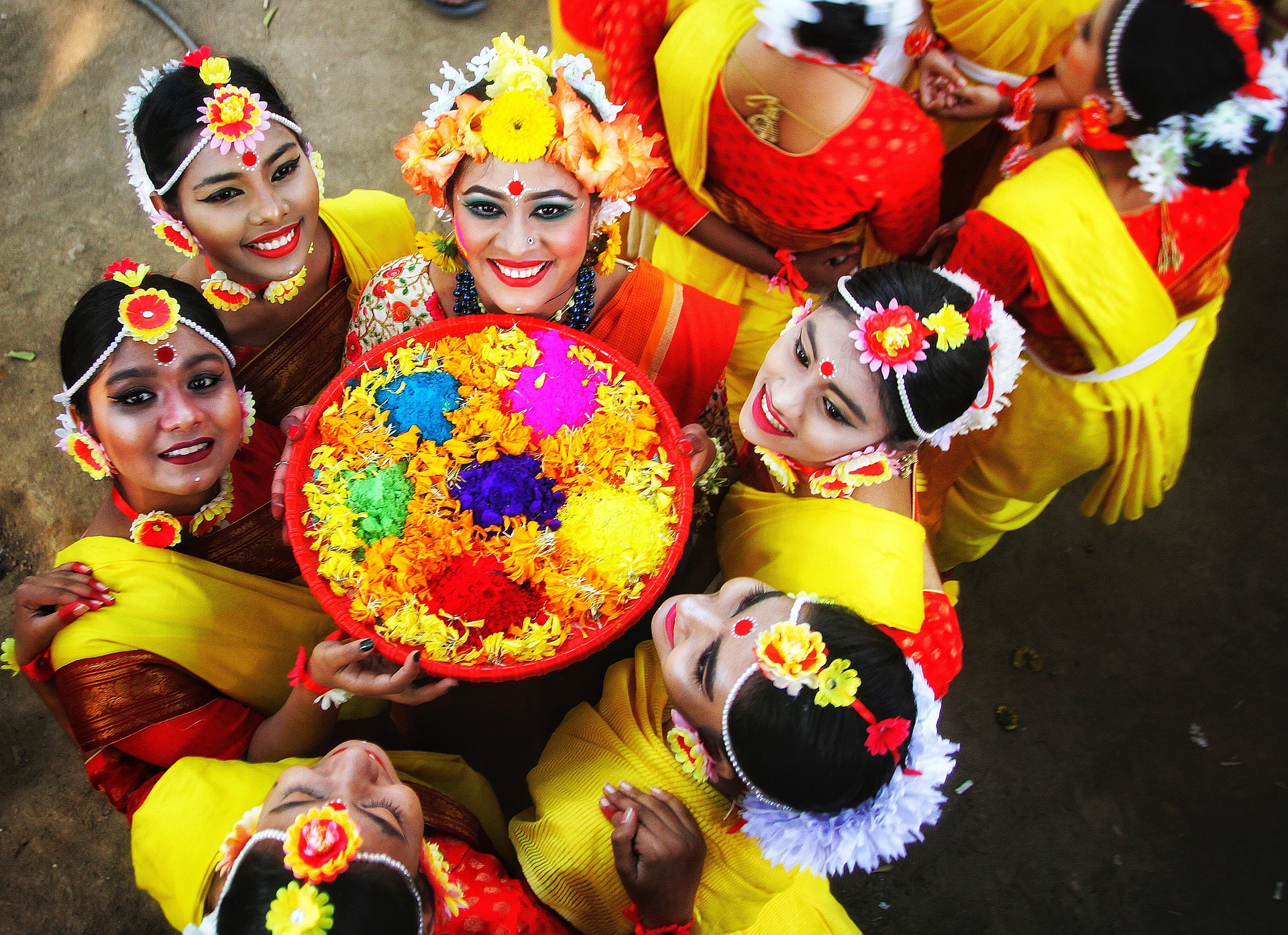
Celebrating the Bengali New Year During COVID
When COVID hit in early 2020, many countries went under a strict lockdown. Public festivals like Pohela Boishakh were canceled in favor of home celebrations. And until the coronavirus pandemic is fully under control, we’re likely to see few mass gatherings.
It’s important to safeguard your health. If you decide to visit friends or participate in a local celebration, don’t forget to take the following precautions as per the Centers for Disease Control in the U.S. :
- Wear a mask and encourage others to wear one, too;
- Keep your distance. Preferably, you should be 6 feet away from other people;
- Sanitize your hands regularly; and
- Don’t go out if you are feeling sick.
Pohela Boishakh Essentials
Celebrated on either the 14th or 15th of April every year, Pohela Boishakh is celebrated in Bangladesh, West Bengal, Tripura, and Assam. Boishakh is the first month of the Bengali calendar and “pohela” (also spelled “poila’) means “first.”
While Hindus may perform an additional puja to Lakshmi or Ganesh, religion isn’t the main driver of this holiday. In fact, one commonly-cited origin of Pohela Boishakh says that it started when 16th century Mughal Emperor Akbar wanted to standardize tax collection . Akbar’s Islamic hijri calendar didn’t coincide with the solar Hindu calendar, causing confusion. He devised a new calendar for the region, which continues in use.
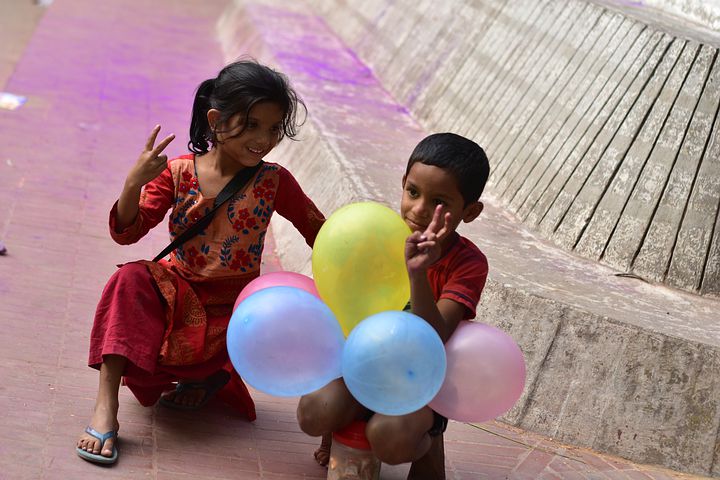
Pohela Boishakh Traditions
Whether it’s called Pahela Baishakh, Poila Baisakh, Pahela Baisakh, or Nabo Barsho, this public holiday in Bangladesh is a big deal.
Traditionally, Pohela Boishakh is celebrated with massive festivals and parades, the largest of which is Mangal Shobhajatra , organized by Dhaka University.
Even if your gathering is small this year, the Bengali New Year is hardly just sitting and sending “Shubho Noboborsho” messages to relatives on WhatsApp. Here are a few things that will set off the festive spirit.
You may want to buy new clothes, set up a playlist of Bangla hits (or Rabindra Sangeet classics), watch the latest Hoichoi original, clean house, and decorate with alpona designs and flowers. And of course, you’ll want your new year celebration to involve Bengali delicacies.
Some popular recipes include:
- Panta bhat and fried ilish
- Begun bhaja
- Beef rezala
- Mutton kosha
- Muri ghonto
- Kanchkolar kofta
- Alur dum and puri
- Basanti polao
- Lobongo latika , bhapa doi, rasgulla, and many more sweets
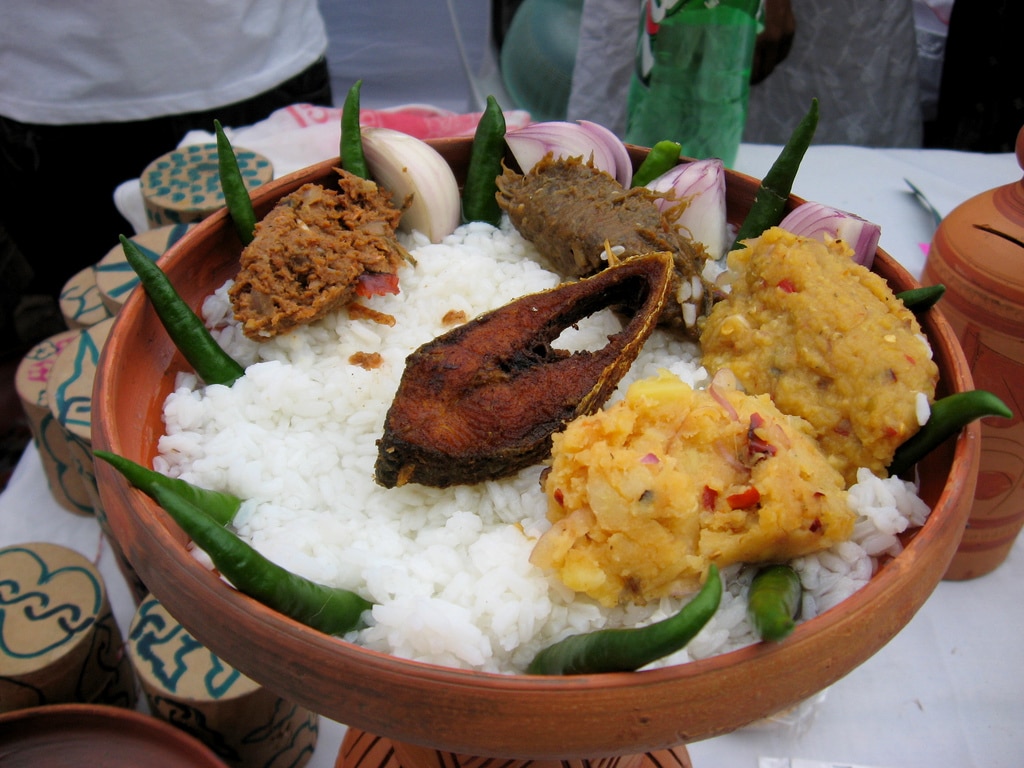
How Pohela Boishakh Is Celebrated Around the World
You probably already know how Pohela Boishakh is celebrated in India and Bangladesh. But with millions of Bengalis living abroad, it’s easier than ever to celebrate the holiday no matter where you are.
Just because you are living far from home, doesn’t mean you won’t be able to get what you need. Whether you come from Dhaka or Kolkata, you’re likely to find everything you need for a successful Bengali New Year.
The Bengali New Year in the United States
If you are in the States, you have a wealth of options. In addition to local Indian or Bangladeshi markets, you’re likely to find what you need at chain stores like Patel Brothers or on Amazon and Etsy. You can even get alpona paste or Rangoli stencils if you plan on making any designs.
For clothes, there are even more options. So long as you know your size, online stores like Hotkay and East Essence give you even more choices for finding ethnic wear in the USA.
And there are many organizations devoted to Bengali culture throughout the USA. These groups might plan Pohela Boishakh events. Even if there’s nothing going on in your area, these groups can be helpful for building community in your new country.
Some of these Bengali organizations include:
- Bay Area Prabasi
- Bengali Association of Greater Rochester, NY
- Bengali Cultural Association – Arizona
- Milonee – Colorado
- Bangladesh Unity Federation of Los Angeles
- Bangladesh Society, INC
- Federation of Bangladeshi Associations in North America
The Bengali New Year in Canada
As in the USA, Canada’s Amazon and Etsy can offer everything you need in terms of clothes and crafts. But local Bengali, general Indian, and Bangladeshi groceries can also make it easy to find food items. Bengal Foods , Bangla Bazaar Supermarket , and the Baraka Super Marke t are just three examples.
Of course, Pohela Boishakh is even more fun when you have more people to share the day with. It can help to join a Bengali or Bangladeshi association to meet others and learn about cultural events. Some larger communities in Canada include:
- Bangladeshi Canadian Community Services
- Bengali Community Service Center of Canada
- Toronto Bengali
- Bichitra Bengali Association
- Lower Mainland Bengali Cultural Society – Vancouver
- National Bangladeshi-Canadian Council (NBCC)
The Bengali New Year in the UK
Since 1997, Pohela Boishakh has been celebrated as Boishakh Mela in the UK. This festival takes place in the Bangladeshi-dominated area of Banglatown located in London’s Tower Hamlets.
It features a parade, a series of music and dance performances, and of course, authentic cuisine.
The UK is home to hundreds of thousands of Bengalis and Bangladeshis, making it easy to find food, clothes, gifts, and more. In addition to the dozens of Bengali supermarkets and shops in London alone, you can also purchase items online on Amazon, DesiCart , Indian Grocery Store , and other online outlets.
You might also want to network with local organizations. Some large Bengali and Bangladeshi associations in the UK include:
- North East Of England Bengali Puja Association
- Bengali Cultural Association
- St. Peter’s Bengali Association
- Swadhinata Trust
- Westminster Bangladeshi Association
The Bengali New Year in Australia
You can find dozens of Indian and Bangladeshi specialty shops across Australia, making it a cinch to prepare for Pohela Boishakh. Way of Bengal , Bangla Dokan , Bangladeshi Fish , and India at Home are just a few examples.
And you can always learn more about what events are going on in your area through Bengali and Bangladeshi organizations like:
- The Bengali Association of Victoria
- Melbourne Bengali Association
- The Bengali Association of New South Wales
- The Bengali Society of Melbourne
- Bangladesh Australia Association of West Australia
- Bangladesh Society of Sydney
- Bangladesh Australia Association Canberra Inc. (BAAC)
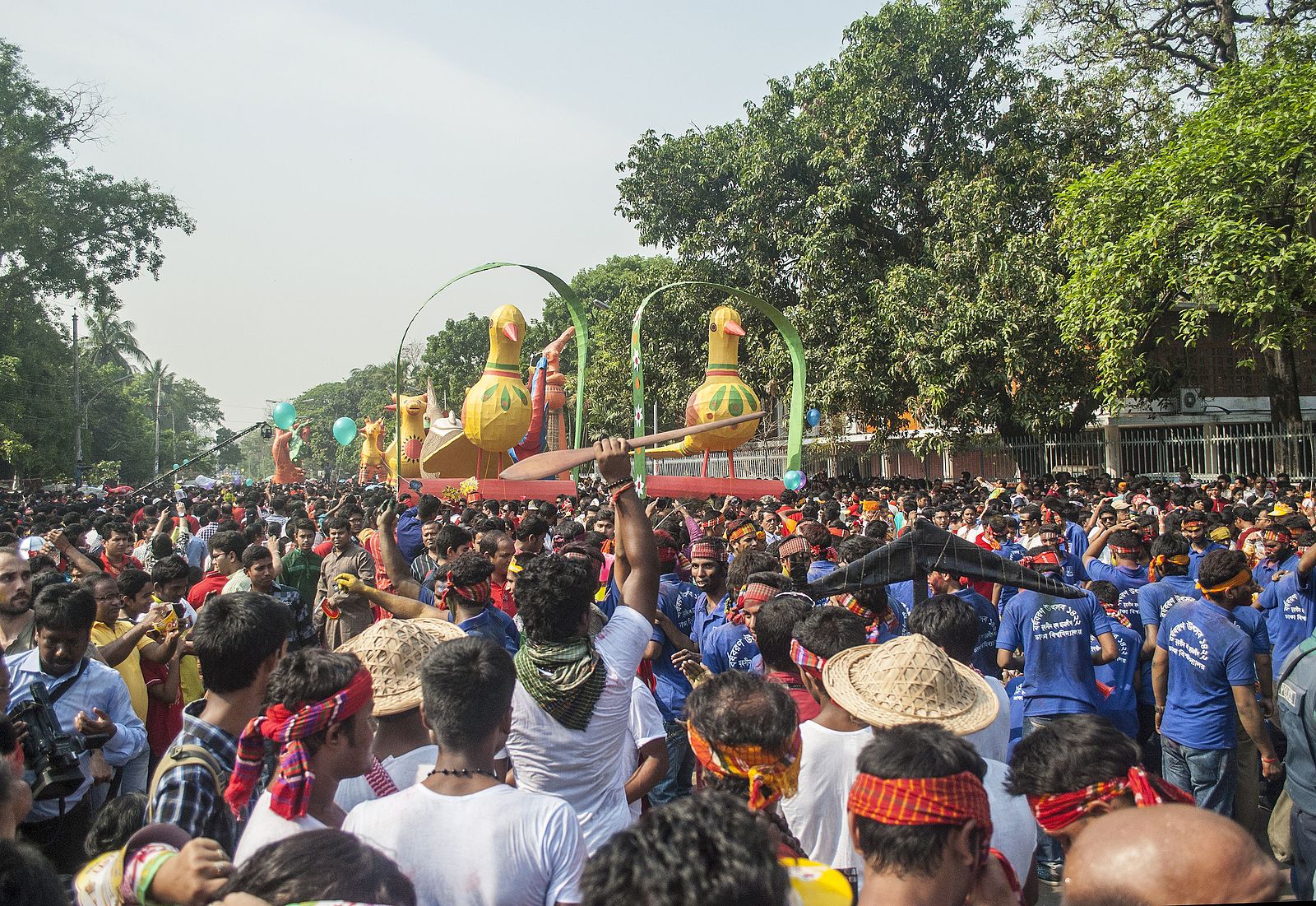
6 More Tips for a Festive Pohela Boishakh
Need a few more ideas for managing the perfect Pohela Boishakh? Here are a few more tips:
- The best way to search for local events is to go to Google, type in the name of your town or the largest nearby city, with the phrase “Pohela Boishakh Events” or “Bengali Association”.
- You can set glue down before applying alpona to make the design last longer.
- If you can’t find an alpona to buy, you can make your own! Soak low-quality rice in water overnight, and then grind it. Add just enough water so that the ground rice becomes a paste. That’s it!
- Pohela Boishakh is a great time for arts and crafts. You can make paper mâché masks, dabble in painting, make flower tiaras, rangoli , or come up with another fun way to display your creativity.
- Why not have a virtual get-together with friends and family? Choose a time to catch up and soak in the sounds and sights of home.
- Invite your friends to watch your favorite Bengali movies on Hoichoi . If you have friends who don’t speak Bangla, no worries! This platform has English subtitles.
- Send an e-card to your friends and family to let them know you are thinking about them.
- Use your NRI bank account to send money home and buy gifts through Amazon India or Flipkart.
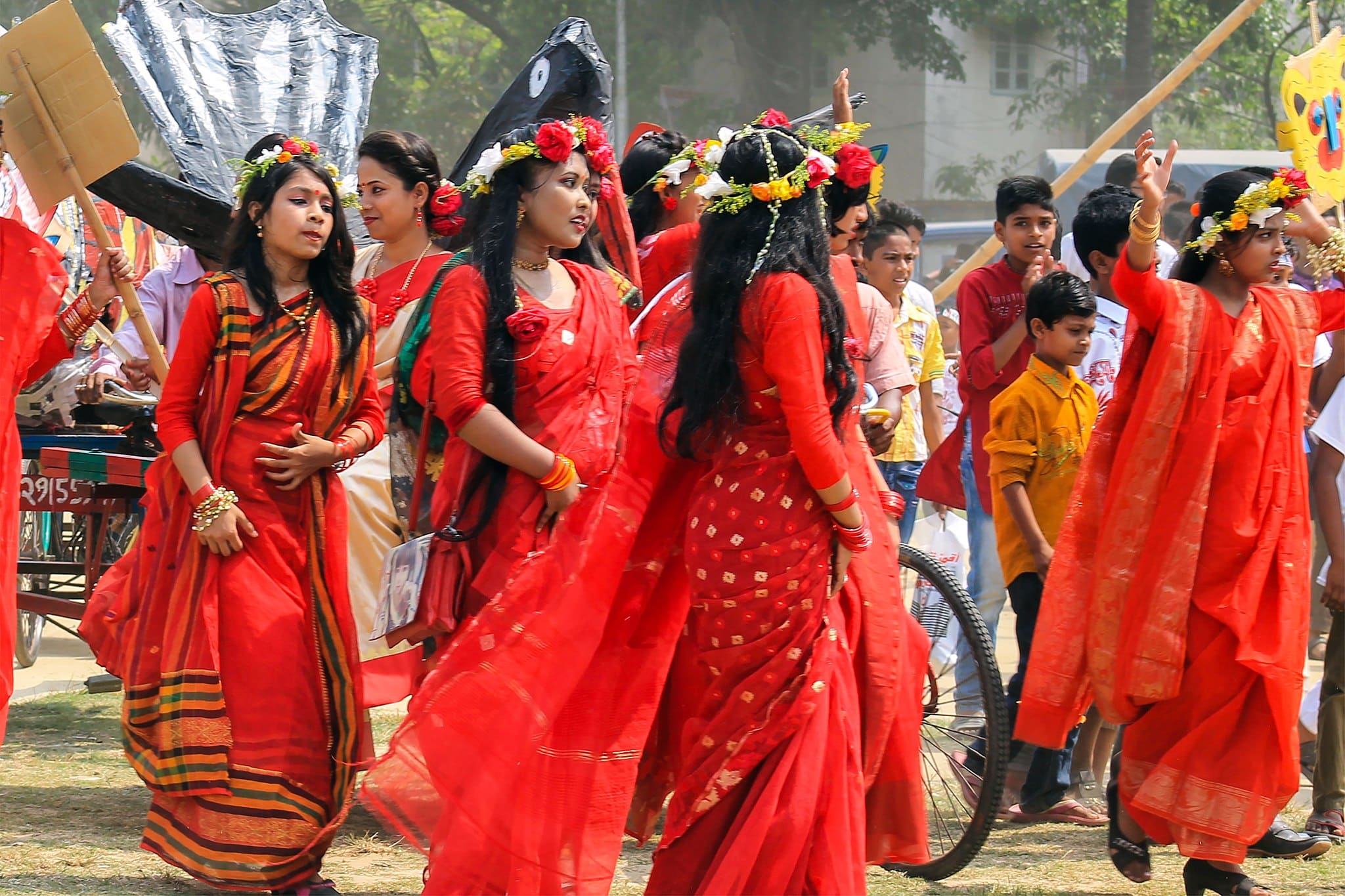
Happy New Year! Shubho noboborsho!

বাংলা নববর্ষ রচনা, Best essay on Bengali New Year in Bengali
” এসো হে বৈশাখ, এসো, এসো। “
কবিগুরু এই কথাগুলি নতুন বছর তথা পহেলা বৈশাখ কে স্বাগত জানাতেই লিখেছিলেন। ঐতিহাসিক ধারাবাহিকতায় বাঙালিদের মধ্যে চলে আসা এক বিশেষ পার্বণ হল বাংলা নববর্ষ।
এই পার্বণ জুড়ে রয়েছে বাংলা বর্ষবিদায় এবং নব বর্ষকে বরণের অনুষ্ঠানমালা। নববর্ষের প্রথম দিন পহেলা বৈশাখ হিসেবে পরিচিত, যা বাঙালিদের কাছে অত্যন্ত তাৎপর্যবহুল একটি দিন। বাঙালিরা প্রতিবছরেই বর্ষ বরণ উৎসব অত্যন্ত উৎসাহ-উদ্দীপনার সাথে পালন করে।
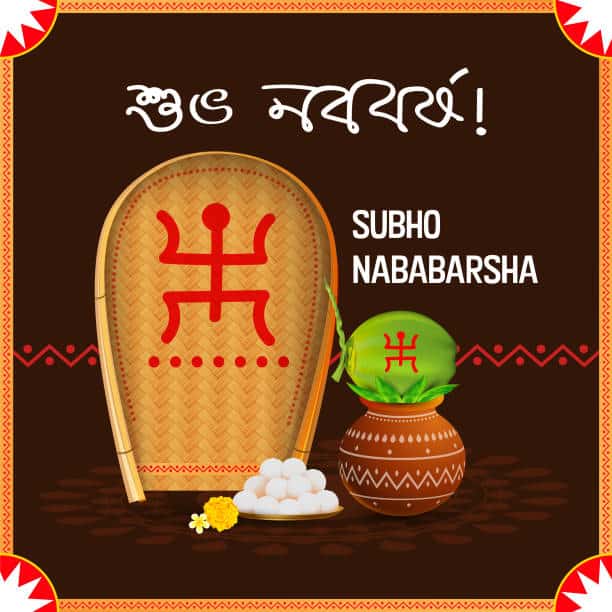
নববর্ষ ও বাঙালি, New Year and Bengali
বাঙালিরা উৎসবমুখী তথা আনন্দপ্রিয় জাতি। পারিবারিক হোক, কিংবা সামাজিক অথবা রাষ্ট্রীয়, নানা উপলক্ষ্যে তারা মেতে ওঠেন আনন্দ উৎসবে। সেই সব উপলক্ষ্যের মধ্যে ব্যতিক্রমী হয়ে আবির্ভূত হয় বাংলা নববর্ষ। কবিগুরুর ভাষায়-
মাতৃভাষার মাধ্যমে শিক্ষাদান, Best essay on Education through mother tongue in Bengali
‘‘নব আনন্দে জাগো আজি নব রবির কিরণে, শুভ সুন্দর প্রীতি উজ্জ্বল নির্মল জীবনে।”
নববর্ষের আগমনে সমগ্র বাঙালিজাতি জেগে ওঠে নতুনের আহ্বানে। গ্রামেগঞ্জে থাকা জীর্ণ-কুটির থেকে শুরু করে বিলাসবহুল ভবন কিংবা শহরতলী- সর্বত্রই যেন প্রবাহিত হতে থাকে আনন্দের এক ফল্গুধারা। নববর্ষ এসে বিদায়ী বছরের সকল গ্লানি মুছে দিয়ে নতুনের কেতন ওড়ায় বাঙালির জীবনে, চেতনায় বাজিয়ে তোলে মহামিলনের সুর, যে সুরের মায়ায় সব ভেদাভেদ ভুলে গিয়ে বাঙালিরা এক সম্প্রীতির মোহনায় ভেসে যায়। তাই কবিগুরু লিখেছেন,
শিক্ষা বিস্তারে গ্রন্থাগারের ভূমিকা, Know about Contribution of library in education in Bengali
“মুছে যাক গ্লানি, ঘুচে যাক জরা, অগ্নিস্নানে শুচি হোক ধরা। “
এই দিনে বাঙালিরা নতুন পোশাক পরিধান করে, মন্দিরে যায়, সুস্বাদু খাবার রান্না করে এবং সকলে মিলে খাওয়া দাওয়া করে এবং প্রিয়জনের সাথে সময় কাটায়। নববর্ষ উপলক্ষ্যে একে অপরকে শুভ নববর্ষ শুভেচ্ছা জানানো হয়। এই আনন্দ উপলক্ষ উদযাপনের জন্য বিভিন্ন স্থানে বেশ কয়েকটি মেলা এবং অনুষ্ঠানের আয়োজন করা হয়।
তবে নববর্ষ সকল বাঙালির কাছে কখনো একভাবে আসেনি। কারো কাছে এটি খরা হয়ে এসেছে, আবার কারো কাছে খাজনা দেওয়ার সময় হিসেবে এর আগমন, আবার কারোও বকেয়া আদায়ের হালখাতা হিসেবেও আসে এই পার্বণ, অন্যদিকে কারও কাছে মহাজনের সুদরূপে হাজির হয়, আবার কারো কাছে আসে আনন্দ উৎসব হিসেবে।
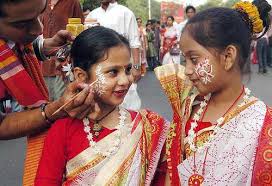
নববর্ষ পালনের ইতিহাস, Information about the history of New Year celebration
সৌর পঞ্জিকা অনুসারে অনেক কাল আগে থেকেই বাংলার বারো মাস পালন করা হত। সৌর বছরের প্রথম দিন বঙ্গ, আসাম, ত্রিপুরা, কেরল, মনিপুর, নেপাল, পাঞ্জাব, উড়িষ্যা, তামিল নাড়ুর সংস্কৃতির অবিচ্ছেদ্য অংশ হিসেবে বহু বছর ধরেই পালিত হয়ে এসেছে। বর্তমানে নববর্ষ নতুন বছরের সূচনার নিমিত্তে পালন করা হয়, বলতে গেলে এটি এক সর্বজনীন উৎসবে পরিণত হয়েছে, তবে আগেকার সময়ে এমনটি ছিল না।
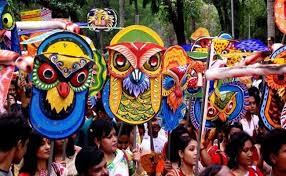
পূর্বে নববর্ষ বা পহেলা বৈশাখ আর্তব উৎসব বা ঋতুকালীন উৎসব হিসেবে পালন করা হত। তখনকার সময়ে নববর্ষ উৎযাপনের মূল তাৎপর্য ছিল কৃষিকাজ, কারণ প্রাযুক্তিক প্রয়োগের যুগ শুরু না হওয়া পর্যন্ত কৃষকদেরকে ঋতুর উপর নির্ভর করেই চাষ করতে হত। নববর্ষে কৃষকেরা নতুন ফসল কাটে এবং নবান্ন গ্রহণ করেন, অনেক ক্ষেত্রে আশেপাশের বাড়ির সকলে মিলে একসাথে খাবারের আয়োজন করে, মেলায় ঘুরতে যায়, আরো বিভিন্ন ভাবে আনন্দ করে।
ছাত্রজীবনের দায়িত্ব ও কর্তব্য, Responsibilities and duties of student life in Bengali
নববর্ষের সাথে মানুষের অর্থনৈতিক জীবনের সম্পর্ক, The relationship of people’s economic life with the New Year
নববর্ষ কেবলমাত্র সাংস্কৃতিক বা সামাজিক উৎসব হিসেবেই সীমাবদ্ধ নয়, এর পাশাপাশি তা অর্থনৈতিক উৎসবও বটে। বাংলা নববর্ষ আমাদের অর্থনৈতিক জীবনের সাথেও নিবিড় তথা গভীরভাবে সম্পর্কিত। এই সম্পর্কও তৈরি হয় হালখাতার মাধ্যমে। হালখাতা হল পয়লা বৈশাখ উপলক্ষে পালিত এক বিশেষ উৎসব, যার মধ্যে চলে যাওয়া বছরের সমস্ত হিসাব-নিকাশ লিখে রাখার কাজ শেষ হয় এবং নতুন একটি খাতা খোলা হয়।
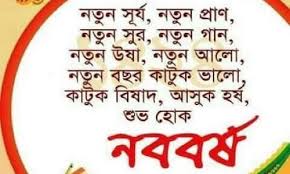
এই বিশেষ ব্যাপারটি বাঙালি ব্যবসায়ী, দোকানদার দ্বারা পালিত হয়। বেশিরভাগ দোকানে পয়লা বৈশাখের দিন লক্ষ্মী-গণেশের পুজো করা হয় ও ভালো কিছু খাওয়া দাওয়ার মাধ্যমে হালখাতা পালন করা হয়। পুজোর পর নতুন খাতায় মঙ্গলচিহ্ন স্বস্তিক আঁকা হয়, তারপর নতুন খাতায় লেখা শুরু হয়।
চারধামের ভ্রমণ গাইড, Best details/travel guide about Char Dham in Bengali
নববর্ষ এবং ঐতিহ্যবাহী আনন্দধারা, Traditional entertainment and New Year
আগেকার সময়ে গ্রামেগঞ্জে পয়লা বৈশাখের দিন থেকে মেলা শুরু হতো এবং বেশ কিছুদিন চলতো, যেখানে ব্যবসায়ীরা বিভিন্ন ধরনের জিনিস নিয়ে দোকান সাজাতেন। বাচ্চাদের খেলার জিনিস, মেয়েদের বিভিন্ন ধরনের অলংকার, ঘর সাজানোর বিভিন্ন জিনিস, ভিন্ন ধরনের প্রসাধনসামগ্রী, দৈনন্দিন জীবনের ব্যবহার করার মত বিভিন্ন জিনিসপত্রও পাওয়া যায়।
এছাড়াও মেলায় যাত্রাগান, পুতুল নাচ, সার্কাস, নাগরদোলা, ম্যাজিক শো ইত্যাদি বিভিন্ন ধরনের আসর বসে। অন্যদিকে নানা ধরনের মিষ্টিজাতীয় খাবারও পাওয়া যায় মেলায়। সাম্প্রতিককালে নববর্ষের সময় আয়োজিত মেলাগুলো কেবল গ্রামীণ জীবনেই সীমাবদ্ধ নেই, শহরতলিতেও এর বিস্তার ছড়িয়ে পড়েছে। নববর্ষের দিনে এখন শহরেও বসে বৈশাখী মেলা।
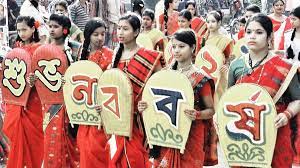
তাছাড়া নববর্ষের বিশেষ দিন সকলেই নিজের বাড়িতে ভালো ভালো খারাব দাবারের আয়োজন করে থাকে, সাথে নতুন জামা কাপড় পরিধান করে। অনেক পরিবারের ক্ষেত্রে এই দিনের ঐতিহ্যবাহী খাবার পান্তা-ইলিশ, আবার কেউ কেউ সর্ষে ইলিশও খায়, এসব ছাড়াও থাকে কচি লাউয়ের সাথে চিংড়ির তরকারি, এক কথায় মাছে মাংসে খাওয়া হয় সেদিন। এসবের কথা মনে পড়ে যায় এক গান,
” বাংলা কাতলা মাছের মুড়োয়
মুগের ভাজা ডাল
বাংলা পাবদা মাছ চেরা
কাঁচা লঙ্কার ঝাল “
শহরের জীবনযাত্রায় অভ্যস্থ মানুষজন নিজের মতো করে নববর্ষ উৎযাপন করে নেয়, তাদের ব্যস্ত জীবন থেকে দুদিনের ছুটি পাওনা হয় বলে বছরের প্রথম দিন বাড়িতে সকলে মিলে একসাথে কাটানোর সুযোগটুকু পায়। ছোটবেলা থেকেই আমরা সকলে চৈত্র সংক্রান্তি এবং পহেলা বৈশাখ উদযাপন করে এসেছি।
বাড়ির ছোটরা বড়দের প্রণাম জানায়, দূরে থাকা আত্মীয়দের সাথে টেলিফোনের মাধ্যমে শুভেচ্ছা আদান প্রদান করা, আবার এখনকার সময়ে তো মানুষ সামাজিক মাধ্যমেও শুভেচ্ছা জানায় একে অপরকে। বাড়ির সবাই মিলে দই মিষ্টি খাওয়া, গল্প ও গানের আসর ইত্যাদি করে সময় কাটান এবং দিনটাকে স্মরণীয় করে রাখার চেষ্টা করেন।
পুরনো বছরের সকল ভুল, দুঃখ, মনখারাপ ভুলে গিয়ে নতুন বছরকে স্বাগত জানানো হয় এক নতুন আশার সাথে। কবির কথায়, “হে নূতন,দেখা দিক আর-বার জন্মের প্রথম শুভক্ষণ। “
রাখীবন্ধন উৎসব নিয়ে যাবতীয় তথ্য, রাখি পূর্ণিমার শুভেচ্ছা, Raksha Bandhan wishes in bengali
আদিবাসীদের নববর্ষ উদযাপন, Adivasi New Year celebration
পার্বত্য আদিবাসীরা বাংলা নববর্ষকে ঐতিহ্যবাহী সামাজিক তথা ধর্মীয় উৎসব হিসেবে পালন করে, তাদের মধ্যে এই উৎসব ‘বৈশাবি’ নামে পরিচিত। ফুরিয়ে যাওয়া বছরের শেষ দুই দিন ও নতুন বছরের প্রথম দিন জুড়ে নানা আচার-অনুষ্ঠান পালন করা হয় এ উৎসবে।
উৎসব শুরুর দিন ‘গঙ্গাপূজা’ করা হয়, এবং বিভিন্ন রকম খাবার দাবার তৈরি করে সকলে মিলে একসাথে আনন্দ উপভোগ করে থাকেন। কিছু আদিবাসী সম্প্রদায়ের পহেলা বৈশাখ ‘বিজু উৎসব’ নামেও পরিচিত। বৈশাখের প্রথম দিনে মেয়েরা প্রচুর ফুল তুলে এনে ঘরের সাজসজ্জা করে। এই বিজু উৎসবের দিন গ্রামের আদিবাসী ছেলেমেয়েরা নতুন জামাকাপড় পরে এবং পাচন নামক একটি বিশেষ তরকারি রান্না করে যা অতিথি সহ উপস্থিত সবাইকেই খেতে দেওয়া হয়।
এই বিশেষ দিনে নানা ধরনের সবজি মিশ্রিত এই পাচন রান্না আদিবাসী সম্প্রদায়ের ঐতিহ্য। তারা বিশ্বাস করেন যে, এই দিনে ভালো খাবার দিয়ে আহার করলে সারা বছর ধরেই ভালো খাওয়া দাওয়া করার সম্ভাবনা থাকে।
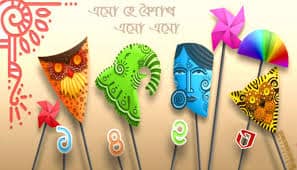
জেনে নিন দুর্গাপূজা নিয়ে অজানা সব তথ্য – Unknown Facts About Durga Puja in Bengali
বাংলাদেশে নববর্ষ উদযাপন, New Year celebration in Bangladesh
বাংলাদেশের মানুষ বর্ষবরণের দিন ভোরে ঘুম থেকে ওঠে স্নান সেরে নিয়ে নতুন জামাকাপড় পরে। আগের দিন বাড়িঘর পরিষ্কার করে সবকিছু সুন্দর করে সাজানো হয়, বিশেষ খাবারের ব্যবস্থাও করা হয়। অনেকে আত্মীয়স্বজন বা বন্ধু-বান্ধবের বাড়িতে বেড়াতে যায়। কিছু এলাকায় খোলা মাঠে আয়োজন করা হয় বৈশাখী মেলার।
মেলাতে অনেক দোকান বসে যেখানে নানা রকম কুটির শিল্পজাত সামগ্রীর বিপণন থাকে, নানারকম পিঠা পুলির আয়োজন করা হয়। তাছাড়া গ্রামীণ ক্রীড়া প্রতিযোগিতার আয়োজন এই বিশেষ দিনের এক পুরনো সংস্কৃতি। এর মধ্যে উল্লেখযোগ্য হল নৌকাবাইচ, লাঠি খেলা বা কুস্তি, একসময় এই সংস্কৃতি খুব প্রচলিত ছিল, তবে এখনো চট্টগ্রামে এই ক্রীড়া প্রতিযোগিতার আয়োজন করা হয়। বাংলাদেশে চট্টগ্রামের লালদিঘী ময়দানে কুস্তির সবচেয়ে বড় আসর হয় ১২ বৈশাখ, যা জব্বারের বলি খেলা নামে খ্যাত।
- জীবন গঠন এবং চরিত্র সেরা রচনা, Best essay on Development of life and character in Bengali
- বাংলাদেশের যানজট সমস্যা, Traffic congestion problem of Bangladesh best article in Bengali
- ইভটিজিং সম্পর্কে বিস্তারিত, Best details about Eve teasing in Bengali
- সাইবার অপরাধ বা সাইবার ক্রাইম, Best write-up on Cyber crime in Bengali
- অধ্যবসায়ের গুরুত্ব সেরা রচনা, Importance of perseverance best essay in Bengali
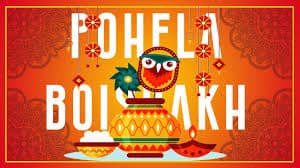
উপসংহার, Conclusion
নববর্ষের সাথে বাঙালির আবেগ জড়িত। তাই বাঙালি প্রধান রাজ্যে সরকারের পক্ষ থেকে ছুটি ঘোষণা করা হয়েছে, যাতে সকলে নিজের প্রিয়জনদের সাথে বছরের প্রথম দিন ভালোভাবে উপভোগ করতে পারে। মুক্ত আকাশের নিচে দাঁড়িয়ে মন থেকে পুরোনো বছরের সব গ্লানি, সকল একঘেয়েমি ভুলে গিয়ে সর্বজনীনভাবে নতুনের আনন্দে মেতে ওঠে সকলে। তাই কবির ভাষায় বলতে ইচ্ছে হয়, ” ছাড়ো ডাক, হে রুদ্র বৈশাখ । ভাগিয়া মধ্যাহ্ন তন্দ্ৰা জাগি উঠি বাহিরির দ্বারে, চেয়ে বব প্রাণীশূন্য দগ্ধতৃণ দিগন্তের পারে। “
Go to Generate Picture Page by Entering Your Email Address
If you provide your email then we will not ask you for email again.
- Create Photo 🤩

Editorial Desk
Recent Posts
বকরি ঈদ/ ঈদুল আযহার শুভেচ্ছা বার্তা, best ever greetings and wishes on Bakri Eid/ Eid al-adha in Bengali
বকরা ঈদ যা ঈদুল আযহা নামেও পরিচিত, সারা বিশ্বের মুসলমানদের দ্বারা বহুল...
হযরত আলীর জন্মদিনের শুভেচ্ছা বার্তা, Wishes and greetings on Hazrat Ali's birthday
মুসলমানদের চতুর্থ খলিফা হজরত আলীর আসল নাম ছিল আলী ইনবে অবি তালিব। হজরত আলী...


- Vishal's account
Bengali New Year 2023 – History, Significance, and Facts
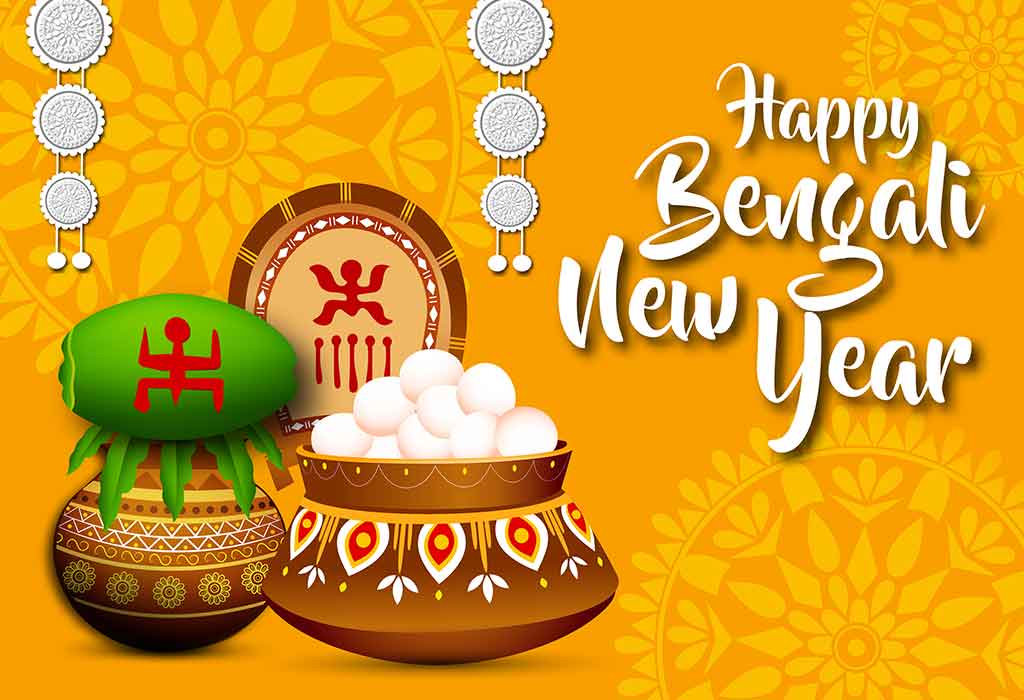
When Is Bengali New Year?
What is the history of bengali new year, importance of bengali new year, how to celebrate bengali new year, how is bengali new year observed across the border, facts about bengali new year for kids.
Bengali New Year is a big day for Bengali people all over the world. Also known as Pohela Boishakh , it is celebrated with much fervour and enthusiasm in the Bengali community. The New Year is observed on the first day of the Bengali calendar, which falls either on April 14 or 15. The celebration includes food festivals, fairs, and more!
The Bengali New Year falls on either April 14 or April 15 every year. In 2023, the Bengali New Year will be celebrated on April 15. Pohela Boishakh is also celebrated by several communities of Assam, Orissa, Jharkhand, and Tripura.
The origin of the Bengali calendar is attributed to Shashanka, a 7th-century king. However, it is believed that the Mughal Emperor Akbar later modified this calendar for tax collection purposes.
The Mughals followed the lunar Islamic Hijri calendar. During that time, the economy was mainly dependent on agricultural produce. In Emperor Akbar’s era, tax was collected as per the Hijri calendar, which didn’t coincide with the harvest season in Bengal. When the landowners were ready to collect tax, the peasants would still be waiting for their produce, and sometimes, they were forced to pay taxes out of season.
In order to ease the tax collection process, Akbar asked his royal astronomer to merge the two calendars—the Islamic lunar calendar and the solar Hindu calendar. This calendar, sometimes referred to as ‘Fasholi Shan,’ facilitated the tax collection process in Bengal after the spring harvest.
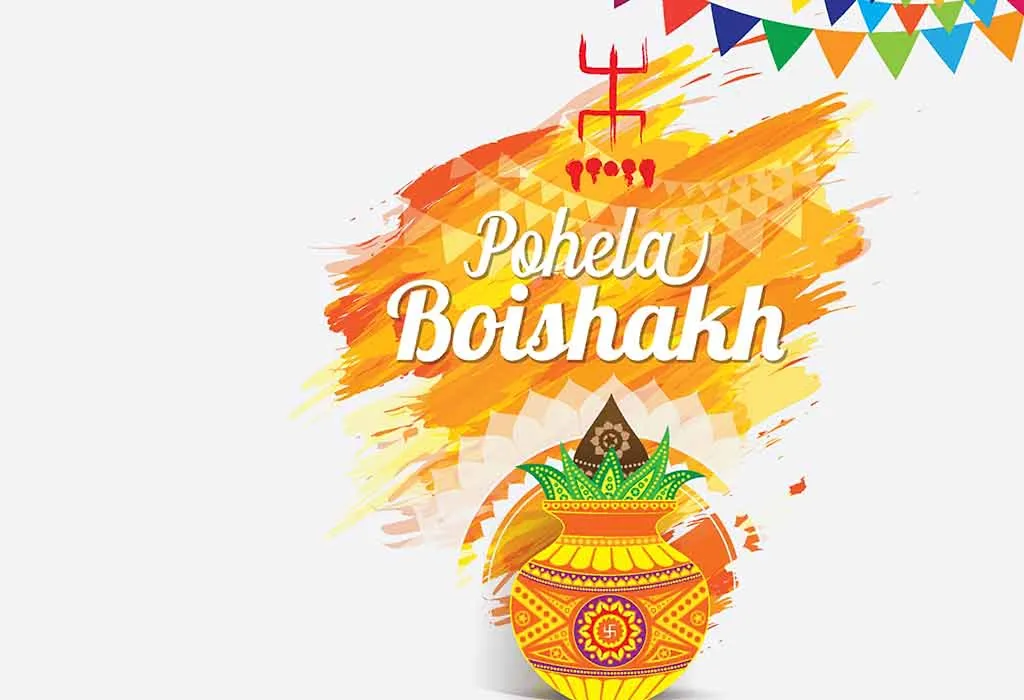
Pohela Boishakh is an important festival for Bengalis, as it marks the beginning of a new financial year. On this day, men and women visit temples in the morning and seek blessings from Gods and Goddesses for a prosperous year ahead. They wear traditional attire, wish their friends and family members, and buy items of gold and silver, as buying these metals on this auspicious day is considered a sign of good fortune.
Just like any other celebration in India, Bengali New Year celebrations involve lots of delicious food! Here are some ways by which you can celebrate Bengali New Year:
- Start the day by visiting a temple and seek blessings from God.
- Make authentic Bengali cuisine, like shukhto , aloo posto, chholar dal, and shorshe ilish, and more, and have a meal together as a family.
- People usually wear traditional attire on this day, especially when visiting a temple or hosting relatives. So, bring out your favourite saree or kurta , dress your finest, spend time with your family, and make memories.
- Clean and decorate your home ahead of time, and make alpona or rangoli .
- People also celebrate Bengali New Year by visiting their friends and family, and wishing them ‘ Shubho N o boborsho’. While you can’t visit your friends and relatives due to the pandemic this year, you can call them up, or send them a sweet message to let them know you’re thinking of them.
Pohela Boishakh is celebrated in our neighbouring country of Bangladesh. It is observed as a public holiday there, and Bangladeshis celebrate the festival by preparing traditional foods and singing Tagore’s famous song, ‘ Esho Hey Boishakh, Esho Esho ’.
Here are some facts about the Bengali New Year. Read these out to your children to help them learn more about this festival!
- Boishakh is the first month of the Bengali calendar. Pohela Boishakh refers to the first day of the Boishakh month, which marks the beginning of the New Year.
- Bengalis wish each other on this day by saying “ Shubho N o boborsh o ,” which translates to “Happy New Year”.
- Bengali New Year celebrations usually involve the preparation of traditional Bengali foods. People make panta bhat, bhartas, ilish bhaji , and other authentic Bengali dishes on this day.
- Bangla Noboborsho coincides with other regional festivals such as Vishu in Kerala, Baisakhi in Punjab, Bihu in Assam, and Puthandu in Tamil Nadu.
This Bengali New Year, cook delicious savoury and sweet dishes, celebrate with your loved ones, and help out those in need. Spread joy and cheer, and have a healthy and prosperous year ahead. Shubho N o boborsh o !
- RELATED ARTICLES
- MORE FROM AUTHOR

Gadgets to Gift the Tech-Enthusiast in Your Life This Christmas!
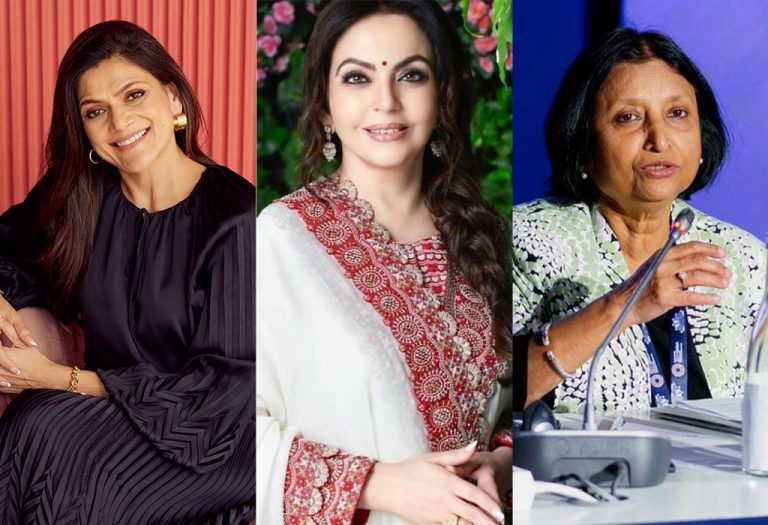
20 Most Powerful and Influential Women in India
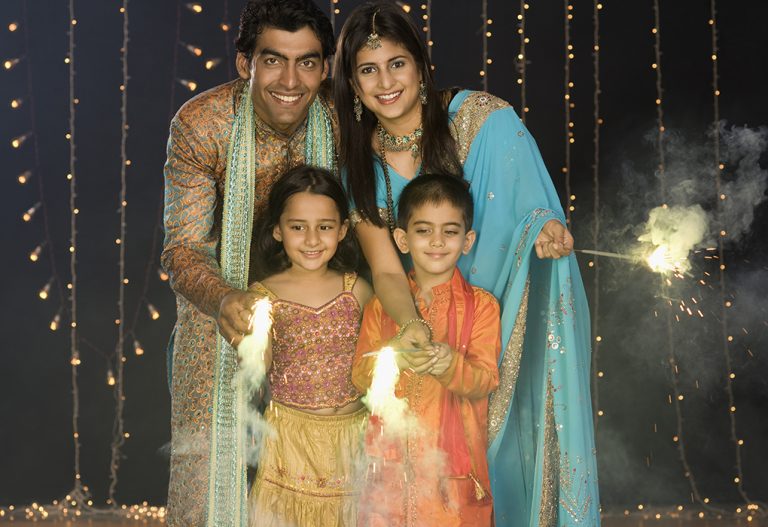
Diwali - The Festival of Sharing, Caring and Spreading Happiness

National Safety Day 2024 – History, Objective & Celebration
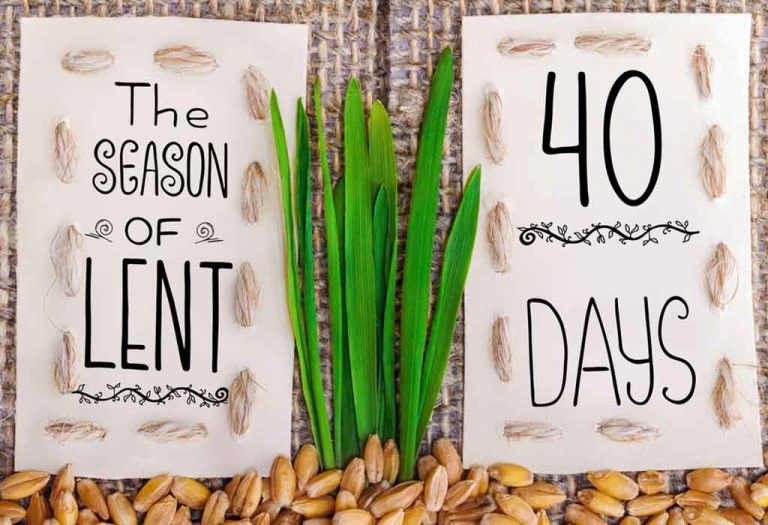
Things That You Can Give up for Lent This Year
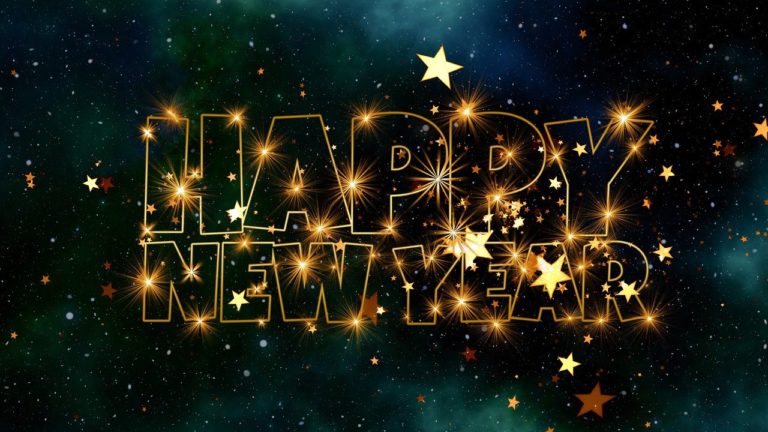
Happy New Year 2024 - 100+ Wishes, Messages and Quotes for Your Family and Friends
Popular on parenting.

245 Rare Boy & Girl Names with Meanings

Top 22 Short Moral Stories For Kids

170 Boy & Girl Names That Mean 'Gift from God'

800+ Unique & Cute Nicknames for Boys & Girls
Latest posts.

Cholera Disease: Causes, Symptoms, Treatment and Vaccination

4th of July Coloring Pages - Free Printable Pages For Kids
Happy 4th of july gifs to share and celebrate us independence day.

Father's Day Coloring Pages - Free Printables For Kids

IMAGES
VIDEO
COMMENTS
Pohela Boishakh (Bengali: পহেলা বৈশাখ)) is the Bengali New Year celebrated on 14 April in Bangladesh and 15 April in the Indian states of West Bengal, Tripura, Jharkhand and Assam (Goalpara and Barak Valley).It is a festival based on the spring harvest—which marks the first day of the new year in the official calendar of Bangladesh. ...
The first day of the Bengali calendar is known as Pahela Baishakh, also known as the Bengali New Year. Every year, on the 14th or 15th of April, it marks the start of the new agricultural year and welcomes the arrival of spring. Pahela Baishakh is widely observed in Bangladesh and West Bengal, India, as well as by the Bengali diaspora worldwide.
The holiday of Pohela Boishakh, which took place this year on April 14th, 2022, ushered in a new year for all Bengalis. At the break of dawn, artists from Chhayanaut (an institution devoted to Bengali culture) sing legendary poet and polymath Rabindranath Tagore's famous song, 'Esho hey Boishakh, esho, esho (come Oh Boishakh, come),' welcoming...
দে. স. পহেলা বৈশাখ বা পয়লা বৈশাখ ( বাংলা পঞ্জিকার প্রথম মাস বৈশাখের ১ তারিখ) বঙ্গাব্দের প্রথম দিন, তথা বাংলা নববর্ষ । দিনটি সকল ...
This year, it will be celebrated on April 15. The origins of Pohela Boishakh can be traced back to the Mughal Empire, where it was celebrated as a harvest festival. The festival gained significance during the Bengali Renaissance in the late 19th and early 20th centuries when cultural icons like Rabindranath Tagore and Kazi Nazrul Islam ...
Traditional 'Naba Barsho' Celebrations . The years known as 2017 and 2018 is the year 1424 by the Bengali calendar, and Bengalis are quickly forgetting the traditional old traditional ways of celebrating the 'Naba Barsho' (Bengali naba = new, barsho = year). However, people still wear new clothes, exchange sweets, and pleasantries with friends and acquaintances.
The Bengali New Year so warmly celebrated all over the world today originated not from Bangladesh. Yes, what is popularly known as Bangla calendar today saw the light of day through a decision declare by Akbar the Great on 10 March 1585, the famous grandson of Zahiruddin Muhammad Babar was the 3rd Mughal Emperor. Akbar started the Bengali ...
Follow Us. Bengali New Year 2021: Noboborsho will be celebrated on April 15. Bengali New Year (Pohela Boishakh) 2021 Date: Poila Boishakh, also known as Bangla Noboborsho, is the first day of the Bengali calendar and celebrated as new year's day. It usually falls on April 14 or 15 every year, set according to the lunisolar Bengali calendar as ...
Pohela Boishakh or Bengali New Year marks the first day of the initial month of Baishakh of the Bengali solar calendar. Bengalis all over the world celebrate New Year on this day which falls on ...
Bengali New Year is celebrated in West Bengal and among Bengali communities in Assam and Tripura and in Bangladesh. Pohela Boishakh is one of the most important festivals for the Bengali community ...
Boishakh/Baishakh is the first of the Bengali months where Pohela simply means "first". The term "Pohela Boishakh" therefore, stands for the first day of the Bengali year and naturally refers to the festivity attached to this day as well. The celebration itself is called "Borsho Boron Utsab" or "Boishakhi Utsab" (the gala of ...
And also in all Bengali communities all over the world. Boishakh connects all ethnic Bengalis. This is a fully ready to write as pohela boishakh paragraph for hsc. Pohela boishakh paragraph in 150 words. The first day of Bangla year is called Pahela Baishakh. We observe this day to indicate the opening of the 1st day of Bangla New Year.
Poila Baisakh 2024: Here's all you need to know about the date, history and significance of Poila Baisakh or the Bengali New Year. Explore. Search Monday, Jul 01, 2024. New Delhi o C. Games.
Bangla New Year. To Bengalis, the new year is a a new opening, a new anticipation, filled with delight, happiness and wealth. The day is celebrated with much pomp and fanfare. The Bengali New Year begins at dawn, and the day is marked with singing, processions, and fairs. Traditionally, businesses start this day with a new ledger, clearing out ...
Poila Baisakh is an important festival for the Bengali community. It marks the start of the new financial year. On the occasion of this auspicious day, devotees visit temples in the morning to seek blessings. The day is observed as the beginning of the new accounting year by the business owners. Farmers pray to god as the day marks the ...
Pahela Baishakh, the first day of the Bengali year is celebrated in a festive manner in both Bangladesh and West Bengal. In Bangladesh, Pahela Baishakh is a national holiday, which falls on April 14 or 15. The festival is celebrated with songs, dances, regional games, kite-flying, ox fighting or reciting of poems with all their regional traits ...
Hence, the Bengali New Year is also known as "Poila Baisakh". The period of Baisakh generally falls in the mid of the month April as per the Gregorian calendar every year. Many also termed this festival as "Naba Barsho" which means in Bengali "New Year". On the same day, the festival of Baisakhi is celebrated in many parts of India.
⭐ Composition / Essay - ৩১১ টি. ⭐ Paragraph - ৬২৯ টি. ⭐ Letter - ১২৪ টি. ⭐ Application - ৮০ টি. ⭐ Email - ৫২ টি. ⭐ Dialogue - ৮৮ টি. ⭐ Completing Story - ১১৭ টি. ⭐ Poems or Stories - ৭৯ টি. ⭐ Amplification - ৫৮ টি. ⭐ Report Writing - ৫৩ টি
Pohela Boishakh Essentials. Celebrated on either the 14th or 15th of April every year, Pohela Boishakh is celebrated in Bangladesh, West Bengal, Tripura, and Assam. Boishakh is the first month of the Bengali calendar and "pohela" (also spelled "poila') means "first.". While Hindus may perform an additional puja to Lakshmi or Ganesh ...
আদিবাসীদের নববর্ষ উদযাপন, Adivasi New Year celebration. পার্বত্য আদিবাসীরা বাংলা নববর্ষকে ঐতিহ্যবাহী সামাজিক তথা ধর্মীয় উৎসব হিসেবে পালন করে ...
Facts About Bengali New Year for Kids. Bengali New Year is a big day for Bengali people all over the world. Also known as Pohela Boishakh, it is celebrated with much fervour and enthusiasm in the Bengali community. The New Year is observed on the first day of the Bengali calendar, which falls either on April 14 or 15.
Indian History, Festivals, Essays, Paragraphs, Speeches ...
History. The Boishakhi Mela was launched in Banglatown located in London's Tower Hamlets borough - the most populated Bangladeshi area outside of Bangladesh.It is a celebration of the Bengali New Year and has been celebrated by the British Bangladeshi community since 1997. The original event based in Bengal is called Pohela Boishakh.The festival was created for the purpose of the Bangladeshi ...